🎗️Lonny's War Update- October 732, 2023 - October 7, 2025 🎗️
🎗️Day 732 that 48 of our hostages are still in Hamas captivity🎗️
‘Positive’ Gaza talks resuming later today, sources close to Hamas say
Negotiations for a hostage deal and ending the Gaza war have been “positive” so far, two sources close to Hamas’s negotiating team tell AFP, with discussions set to resume around midday.
“The talks were positive last night, with the first round lasting four hours,” one of the sources says. “The indirect negotiations are scheduled to resume at midday,” he adds.
Another Palestinian source confirms the talks will resume in the Egyptian resort town of Sharm El-Sheikh.
An Arab diplomat told The Times of Israel yesterday that it will take several days, possibly longer, before a deal will be reached.
Protesters calling for hostage deal rally outside homes of ministers, coalition lawmakers
Protesters calling for a hostage deal and end to the war in Gaza rally outside the homes of ministers and coalition lawmakers on the second anniversary of the October 7 onslaught.
Demonstrators chant “we haven’t forgotten the abandonment.”
Hostage families demand ‘explanation’ after Netanyahu mistakenly says 46 captives held in Gaza
The Hostages and Missing Families Forum demands an “explanation” from Prime Minister Benjamin Netanyahu after he misquoted the number of hostages in an interview with conservative political commentator Ben Shapiro.
The forum notes that the hostages were taken two years ago from today, “All of them on your watch.”
“So we will update you — there are 48 hostages in Gaza,” the forum says.
“For us, and for the people of Israel who for two years have taken to the streets week after week, every one of them is a whole world. Every one of them must come home, the living for rehabilitation and the fallen for burial in their land,” the forum says.
Addressing Netanyahu, the forum says he has an opportunity to end the “nightmare” and return all the hostages, “48, not 40, and not 46.” link Unfortunately, this is not the first time that Netanyahu has stated the wrong number of hostages since the war began. It has been a relative constant. At one press conference, he stated a wrong number and had to ask his aides how many hostages there were at the time. On several occasions, he also only spoke about the living hostages and stated numbers that were different than what is known and told to the hostage families. At those times, they demanded answers from him and he went back to the reported numbers. This has also happened when Trump reported different numbers of living hostages and the families demanded to know if he was given updates that they were not. Netanyahu insisted that he was not, and the families still don't know what to believe as they know that Netanyahu is a consummate liar.
The government and especially Netanyahu has not been forthcoming at all with the families, not with information and not with availability to talk to them. The American officials, both in the Biden and the Trump administrations have always been available to talk to the hostage families and not just the Americans. It is the complete opposite with our own government.'I kissed Shiri, Kfir and Ariel. If I had wknown it was the last time, I would have kissed them more'
In a ruined house that once held laughter, Yarden Bibas recounts the last hours with his family, the muffled life inside a kibbutz home, the tunnels of captivity, and the aching duty to preserve memories while fearing they will fade
HomeThis house is just a building. It is not mine, we did not buy it, and what remains of it belongs to Nir Oz. It is not my home. My home was the kibbutz, the friends and the community. I was not born here, but I lived here for the last four years. Shiri was born here, and here the two of us learned to be parents, a family. Here Ariel learned to walk and talk, here he told his first joke. Here he became a big brother when Kfir was born. There are more good memories in this house than I can describe.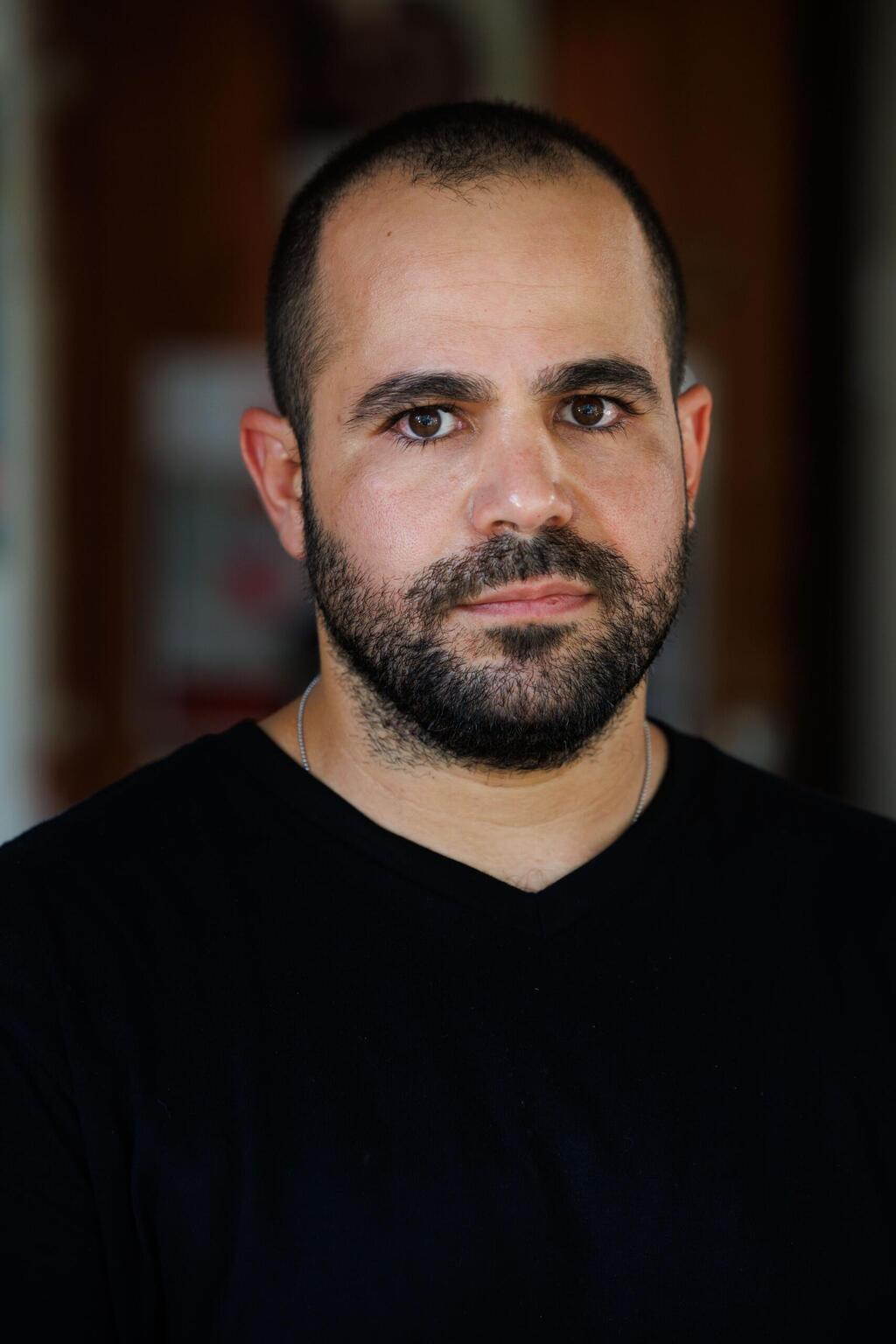 Yarden Bibas (Photo: ZivI sit on the couch, in my corner where I always sat. Almost two years have passed since I sat here, and I can still see the house as it was on Oct. 6, only this time it is not clean and not tidy, and this time there is a big bloodstain from Tony, our dog, on the floor. The couch Shiri sat on, where I used to rest my head on her lap, is perforated by bullets. Kfir’s trampoline is abandoned outside the house and dirty. Ariel’s sandbox is full of things I do not recognize. His new bike was stolen just when I had started teaching him to ride without training wheels. I did not get to teach him that, but the memory remains.Among the rubble, after the terror tornado this house went through, I find things. Like this napkin I hold in my hand that easily could have been thrown away or vanished into the cracks. An orange napkin from our wedding. It has shards from the cup I broke under the chuppah. We kept them, planned to make something of them, but we never had time.I am at home, in a place I know and do not know, one that has turned from familiar to foreign. Entering it now feels like my whole life - nothing like what I knew. They too have become messy, stained with blood, sad. It no longer feels like a home, the feeling here is dark. From a house of joy and laughter it has become cold and painful. And it is quiet. Not the good quiet we loved, but a bad quiet, the kind of terror quiet. I have not come in here much. It is hard for me. There were times I was at the kibbutz but did not enter the house. I know that every time I go in, I do not know what I might discover. Kfir’s diaper basket. Ariel’s toy car. A dusty photo album under the sideboard.Like packing things when you move to another house, I pack memories. I decide what I will take with me and what I am willing to leave behind. Items with bullet holes or blood, or anything that reminds me of Oct. 7, I do not take. I do not want to hurt the good memory. Over the years I fear it will disappearI will donate the children’s blue chairs. I will also give Shiri’s art supplies that we bought to do activities with Ariel to other children who can play and create. I will take some of the boys’ dolls. Objects have no value except for the memory that comes with them. Every object floods me with a happy memory, and every object I cannot find is a memory taken from me. I look some more. Shiri’s dresses. Ariel’s costumes.In captivity, when Nimrod Cohen was with me, Nimrod, who is still there, we spoke a lot about holidays. A memory of Ariel dressed as a dinosaur came up then, before his Batman phase. Shiri sent me the video from the kindergarten. Each child went up on stage and presented their costume. His first costume was a carrot. The second was the baby on the Bamba package. When I talked about it with Nimrod, the video kept playing in my head and for three days I did not stop crying.The last kissOnce Shiri and I had a little fight, and that morning when I left for work I kissed Ariel and Kfir. I was angry. On my way she called me crying and angry and said, "No matter what happened, and no matter what we argued about, you must not leave the house without giving me a kiss." I felt really bad that I left like that. I agreed immediately and apologized. All day I felt bad and guilty, and when I came home from work I hugged and kissed her without stopping and promised her it would not happen again.On Oct. 7, before the terrorists managed to break into our house, we heard them drilling at our front door. I looked at Shiri and asked her, "Fight or surrender?" She told me, "Fight." Earlier, when talk of an infiltration started in the kibbutz, I had already brought the pistol and an extra magazine. I opened the safe room door, aimed toward the door they were drilling and began to shoot. When they managed to enter the house through the bedroom window, they began shooting back. During the gunfight I saw their bullets penetrate the safe room door, like it was made of butter, toward Ariel’s bed, where we had asked him to hide. I told Shiri, "I have to surrender, they are shooting toward Ariel, I do not want him to get hurt."I placed the pistol and the magazine on the small table in the room, I lay down on the floor and shouted, "Enough, enough, there are children here." In Hebrew, in English, hoping they would understand something. Then they entered the safe room. They kicked me while I was on the floor, and when they pulled me up, one of them motioned for me to go outside. I pointed at Shiri and the boys and said, "Not them," and he nodded "no." I pointed at them again and said, "Not them." The terrorist pointed at me and told me, "Only you, come on."I signaled with my hands if I could give a kiss before I left. He nodded "yes," "come on, come on." I went to Shiri and told her they had come to abduct us, that they do not take women and children. "It will be fine, I will go with them so they will not hurt you and I will not make trouble," and Shiri was afraid, holding herself back from crying.I kissed Shiri, Kfir and Ariel, I told them I loved them more than anything in the world, always and forever. I told myself in my head they would execute me outside, and I entered a kind of euphoria. My whole body felt light. I was not afraid. At every step of the way to Gaza I said, here it comes. When they took me out of the house, here on the grass, during the lynching, I thought I was about to die. Before they shoved me into the tunnel, they shone a flashlight on the body of a man who looked like he had been dead for quite some time. Son of a bitch, do you want to kill me next to this disgusting thing? That is what flashed through my mind. He only said to me again "come on, come on" and pushed me toward the tunnel opening. Then I understood they wanted me alive. I thought of Shiri and the children and told myself they would take them to a safe place, they would wait for me. I would come out and we would overcome everything, Ariel would get through it with our help, Kfir would probably not remember too much because he was a baby. Everything was small compared to us. If I had known this would be the last time, maybe I would have kissed more, kissed again. Today I understand how meaningful that kiss was. the last kiss. Shiri, I never left the house without giving you a kiss.They dragged me out of the safe room, Ariel’s room. The room that was beautiful and innocent, full of toys, experiences, stories. That morning it was our fortress, and now it is simply a sad and aching room. Without Ariel and Kfir’s laughter. Here we were all together for the last time, the whole family. That was the last time I saw them, and here we parted ways. It was the end of the Bibas family.The happiest woman in the worldWhen they say "the Bibas family," the first image that comes to mind is the picture of Shiri and the children at the moment of the abduction. If there is anything I would like people to know, it is that Shiri was not like that. She was not the frightened, pale woman everyone saw. Shiri was the happiest woman in the world. A woman who loved to dance, to be part of organizing activities and to take part in holiday events. She loved the kibbutz, the community, the friends. Shiri was the perfect partner for me and an amazing mother.She put up with my nonsense and craziness. She even compromised with me: "the Cummins flag"(the Dodge Ram engine flag)would not be in the living room, but it would hang in Ariel’s room. I met Shiri several years before we became a couple. On Purim, David and Eitan invited me to dinner with the whole Cunio family. They talked about Shiri and about how she was single and looked at me. I told them there was no chance, she would not look my way. They said, "No way," and that she was always happy to see me. I was always happy to see her too, but I was shy and did not dare to approach her. That is how it was—on one hand David pushed me, and on the other Sharon pushed Shiri—a nudge from both sides so someone would finally make the move. That evening we went for a walk in the kibbutz and that is where it all began.Shiri was from kibbutz Nir Oz. Her parents lived there. We were close to them, even physically within walking distance. Margit and Yossi were ideal grandparents; they spent a lot of time with their grandchildren and helped us when we needed them. They hosted us for dinners and barbecues with Dana my sister-in-law and her family. On Oct. 6, when we returned from Friday dinner at Dana’s, we asked Grandma Margit to watch the children and we went to the kibbutz pub. There we met Grandpa Yossi, and Yair Horn who worked there and always smiled at everyone who came in. The next morning, Margit and Yossi were murdered.I loved Shiri’s relationship with my parents, Pnina and Eli, and Edna my father’s wife. They too were wonderful grandparents. Shiri always felt comfortable and natural with them. She could send me a message: "My throat is starting to hurt, stop by your mom’s, she made me chicken soup" and my mother would always ask later about the food containers, and Shiri would tell me to say they were not at our place and that we had already returned them, simply because she wanted to keep them at our house. We loved making small, modest birthday celebrations at the kibbutz pub with the whole family. My father and Edna would come, my mother, Yossi and Margit, Dana and Elad and the children, and close friends. Small and family-oriented, just the way we liked it.Before we moved into this house, Shiri came to see it and filmed it for me, an empty house after renovation. I was quite disappointed and told her, "Shiri, the house is small. It is nothing, isn’t there something a bit bigger with more space?" Shiri said, "We will make this house a home, we will turn it into that." And that is what happened. We furnished it. At first we did not even have a refrigerator, just a cooler with ice. We sat on mattresses until we bought a couch. But we made it. We turned this building into a warm, loving, family home. Our home.Whenever we talked about home, Shiri would say something that stays with me. She said she wanted a house that is not too big and not too small, but a home warm enough that the warmth would remain inside. A home that would feel warm without cold parts. Our house did not have a lot of room for entertaining, but that did not prevent us from inviting my sister Ofri and my brother-in-law David and the nieces for dinners or just a hangout. I miss seeing Ariel and Kfir play on the grass or with hand paints in the yard. In captivity I told myself we were lucky Ofri and David left Kibbutz Reim a month before Oct. 7. I miss sitting on a mat on the grass with Kfir, seeing Tony lying in the sun soaking it up and having thorns under me in case a cat passed by. He did not come when we called him, but he was a good dog and he protected the children.In captivity, the thought of Shiri and the children kept me going. I thought as long as they were okay and waiting for me, I would be okay too.My sonsI wanted to be a dad who went along with his sons’ nonsense, and I loved doing that. When Ariel wanted to go to kindergarten in costume, I said fine. We let him express himself his way. Shiri always laughed at me for being like a helicopter, hovering over Ariel, circling him and watching over him.The first meeting between Ariel and Kfir was so natural. I went to get Ariel from kindergarten and Shiri was waiting at home. He knew he would meet his brother that day and he was so excited. At the entrance to the house there was a sign our friends, the Cunios, made for us: welcome. Ariel approached the door, saw it and asked, what is here? I told him: our friends the Cunios made a sign for us. Then Shiri opened the door, hugging and joyful. When they met, Ariel gently rested his head on Kfir. He hugged him. He stroked his tiny feet.From the beginning Ariel was a big brother who just wanted to give to Kfir and share with him. He did not envy the attention the newborn got. He was simply happy and independent and ran around the house and jumped on Shiri when she was on the couch and pushed his stroller everywhere. The whole kibbutz was one big playground for him. The lawns, the paths, the friends.From every corner memories flood me. My father once came to install an air conditioner in Ariel’s room, bringing his toolbox and setting it on the floor in the room. Ariel also brought his toy toolbox. My father took out a screwdriver and Ariel took his out after him. My father took out a drill and Ariel took his drill. I told my father, how is it that Ariel has more tools than I do?A regular morning, I get up early to go to work. I return from a walk with Tony and Shiri asks me to watch Kfir who just woke up. Kfir plays with an empty wipes pack and laughs, and Shiri shouts at me, "Stop waking him up, I want to go back to sleep," and I say, "It is not me, it is him." That is one of the sweetest memories I have, the empty wipes pack. The more important a memory is to me, the more I fear losing it.Before Oct. 7 I worked two jobs and came home late. Sometimes I managed to sit with Ariel a little before he fell asleep but most of the time I returned after the boys had gone to bed. I so wanted them to lack nothing and there was not enough time. It will always be hard for me. I also have too few photos. I was sure I could recover those that were on the phone, but then I discovered I did not back them up properly. Since I realized they are gone, something in my memory will not let go. I am afraid of forgetting.If life is a race, Shiri and the children were my finish line. They were my victory in the world. They were the fulfillment of my dream to be a husband and a father. When I wake up in the morning the first thing I feel is absence. I had everything, and I lost everything. This journey is over and all I have left from it is memory. I cannot see beyond tomorrow. But I chose life, and at my own pace, slowly, maybe I will see the day after tomorrow.I miss the sound of Ariel playing in his room, the sight of him running between the rooms, ginger, looking like Chucky and climbing on the bed to lie between me and Shiri. I miss Kfir’s laugh, the sound of his toy. Tony’s sounds when he walked in the house. Shiri and my conversations, her voice saying, "Yarden, turn over, you are snoring." The house was small in size but enormous in what it contained—memories have no volume and it contained so many of them. I remember seeing him strolling with the twins in the pram and going out to him and we would talk and arrange to meet in the evening at his place or Eitan’s for coffee or a beer to talk about everything and mostly about nonsense. "Simple lives," on the surface. Everywhere I go I carry the absence of David and Ariel. With longing and worry.DavidI remember moments with David in captivity when we met in the tunnel. When I saw David there for the first time I got up from the mattress I sat on and we embraced. A very strong hug. He told me that when he first saw me he thought he was looking at a ghost because he was sure I had been killed in the safe room. He was angry about being separated from Sharon, about them taking him away from his childhood, and not knowing where they were taking him. I tried to strengthen him, he tried to strengthen me. After the video they filmed and after they told me about Shiri and my boys, when I asked to move to him, for the second time in our lives we slept together. One beside the other, under the same blanket.After a while they separated us into two groups. David and I asked to stay together but they did not agree. Sometimes when we moved from place to place through the tunnels we passed each other. We hugged. We strengthened each other as much as we could, and we continued. David and Ariel, it is hard that you cannot pick up the phone, send a message, ask "Coffee?" or simply send that coffee cup emoji. Something so simple. When Eitan and I meet today, we look at each other and without words feel the lack, the brothers and the friends. If once our conversations were light, today they are very heavy, about politics, about war. About worrying for brothers who are still in captivity.I will never get over the loss of Shiri and the boys, but I am here trying to recover. David, Ariel and the other captives deserve to return home and at least try to rehabilitate. The fallen deserve a proper burial.CommunityThe community you live with in a kibbutz is an inseparable part of home. It comes with the house. Even if I was not very active and involved in it, I still felt part of it.I remember one of the COVID lockdowns on New Year’s Eve when it was forbidden to leave the house and meet others. There was an initiative for everyone to stay in their yard and they played music on the large lawn by the dining hall so it could be heard throughout the kibbutz. Yair Horn and another kibbutz member drove around in a truck with a beer barrel and poured. It was a big party of many small parties. Shiri and I were in the yard lying on the grass. I put my head on Tony, Shiri put her head on me, and Ariel’s monitor was beside us. The kibbutz is more than a fenced group of houses surrounded by vegetation. It is the community. And the community is the people in it.Shiri and I walk the paths and occasionally meet Arbel and Ariel who skateboarded, we walk the same way until each of us turns toward our direction. Taking out the trash sometimes became a social encounter. Pumi, Eitan’s dog, would scratch at our door, come in, greet Tony, drink from his water, eat from his food and leave. That was the sign of autumn and that Eitan had gone out walking with his daughters and we would join them and walk together, meet more people on the way, stop at the playground and sit on the grass. In the evening, if Shiri had a long day and was tired I would pop over to Eitan or David for coffee. We would decide where to meet and send a message to Ariel. Lucas would come with one of his boys on his electric bike. Luis would sometimes join. A small coffee turned into a gathering of friends and family, friends who became family.He was angry about being separated from Sharon, about them taking him from childhood, and he did not know where they were taking him. In the kibbutz the air is clean, and the quiet is hard to explain. There was a sense of rest and calm. And yet we bought a large enough car so we could evacuate quickly if needed, and my pistol was always within reach. There were thoughts and vigilance, and we did not forget where we live.I return from Friday shopping with flowers for Shiri. When I approach the house I already start smiling because I know that if my neighbor Ofir, Shagig Dekel Chen’s sister, is outside and sees me she will embarrass me, which of course she did.Yossi the neighbor, Ofir’s husband, Ariel’s "partner," sees him and calls out to him, "A-riel, what’s up my partner," and they bump fists. Nir Adar, Tamir Adar’s brother who is still in Gaza, Ariel played with his daughter Rani on the lawn outside our house and sometimes he brought us breads and spreads from his shop or just chatted. Itzik Algrit, of blessed memory, who worked in the kibbutz infrastructure insisted on fixing a small water burst outside our house on Friday even though I did not think it was urgent. Itzik said, "There should not be a puddle of mud, there should be no dirt."That was our row of houses—Elgarat, us, Nir Adar and Ofir and Yossi. When I came back from captivity I heard something for the first time—the statistic that one in four in Nir Oz was kidnapped or murdered. To this day that phrase "one in four in Nir Oz" shocks me.HeroesAriel loved soldiers. He always got excited when he saw them, and was also a little shy. When I see soldiers, I have the same excitement and shyness he had. They are heroes, every soldier and female soldier of ours. I want to adopt that gratitude for soldiers. Like in the United States where they say to service members, "Thank you for your service," I think we should also express that appreciation here to those serving in active duty and reserves for their service and heroism.They deserve all the appreciation and support. They fought and continue to fight for the country, and now the country needs to fight for them. I want to ask every soldier: look after yourselves. Come home in peace. In captivity there were moments when I told myself that when I get out of here and return to Shiri and the children we will leave the country. After seeing the number of terrorists who entered Nir Oz on Oct. 7, I could not feel safe. But at the same time I told myself, "You are not going anywhere." He only said to me again "come on, come on" and pushed me into the tunnel opening. Then I understood they wanted me alive. I thought of Shiri and the children and told myself they would be taken to a safe place and wait for me. I would come out and we would overcome everything. Everything is small compared to us.In the end there is nothing like the people of Israel, the warmth, the unity that unfortunately has been damaged recently. That when someone posts about a kid who is being ostracized and no one comes to his bar mitzvah, or a couple who get married and no one is invited, or a lone soldier who fell in battle and does not have much family, and half the country drops everything to be there to celebrate or to console—also after disagreements, our people are like a community. All for oneEvery abductee and captive has a family, and everyone can have a future. I too want to do very bad things to Hamas, things that will make the Saw films look like Disney, but it will not bring back my family. The other abductees and captives, the living and the fallen, can and must still be brought back.We need to remind ourselves why it is important to fight for our people, for ourselves, as only we know how. There will always be wars and people who want to fight us. The IDF and security forces will always know how to eliminate our enemies at the right moment. I believe in that. Now what matters is bringing home our people in captivity. Link
Yarden Bibas (Photo: ZivI sit on the couch, in my corner where I always sat. Almost two years have passed since I sat here, and I can still see the house as it was on Oct. 6, only this time it is not clean and not tidy, and this time there is a big bloodstain from Tony, our dog, on the floor. The couch Shiri sat on, where I used to rest my head on her lap, is perforated by bullets. Kfir’s trampoline is abandoned outside the house and dirty. Ariel’s sandbox is full of things I do not recognize. His new bike was stolen just when I had started teaching him to ride without training wheels. I did not get to teach him that, but the memory remains.Among the rubble, after the terror tornado this house went through, I find things. Like this napkin I hold in my hand that easily could have been thrown away or vanished into the cracks. An orange napkin from our wedding. It has shards from the cup I broke under the chuppah. We kept them, planned to make something of them, but we never had time.I am at home, in a place I know and do not know, one that has turned from familiar to foreign. Entering it now feels like my whole life - nothing like what I knew. They too have become messy, stained with blood, sad. It no longer feels like a home, the feeling here is dark. From a house of joy and laughter it has become cold and painful. And it is quiet. Not the good quiet we loved, but a bad quiet, the kind of terror quiet. I have not come in here much. It is hard for me. There were times I was at the kibbutz but did not enter the house. I know that every time I go in, I do not know what I might discover. Kfir’s diaper basket. Ariel’s toy car. A dusty photo album under the sideboard.Like packing things when you move to another house, I pack memories. I decide what I will take with me and what I am willing to leave behind. Items with bullet holes or blood, or anything that reminds me of Oct. 7, I do not take. I do not want to hurt the good memory. Over the years I fear it will disappearI will donate the children’s blue chairs. I will also give Shiri’s art supplies that we bought to do activities with Ariel to other children who can play and create. I will take some of the boys’ dolls. Objects have no value except for the memory that comes with them. Every object floods me with a happy memory, and every object I cannot find is a memory taken from me. I look some more. Shiri’s dresses. Ariel’s costumes.In captivity, when Nimrod Cohen was with me, Nimrod, who is still there, we spoke a lot about holidays. A memory of Ariel dressed as a dinosaur came up then, before his Batman phase. Shiri sent me the video from the kindergarten. Each child went up on stage and presented their costume. His first costume was a carrot. The second was the baby on the Bamba package. When I talked about it with Nimrod, the video kept playing in my head and for three days I did not stop crying.The last kissOnce Shiri and I had a little fight, and that morning when I left for work I kissed Ariel and Kfir. I was angry. On my way she called me crying and angry and said, "No matter what happened, and no matter what we argued about, you must not leave the house without giving me a kiss." I felt really bad that I left like that. I agreed immediately and apologized. All day I felt bad and guilty, and when I came home from work I hugged and kissed her without stopping and promised her it would not happen again.On Oct. 7, before the terrorists managed to break into our house, we heard them drilling at our front door. I looked at Shiri and asked her, "Fight or surrender?" She told me, "Fight." Earlier, when talk of an infiltration started in the kibbutz, I had already brought the pistol and an extra magazine. I opened the safe room door, aimed toward the door they were drilling and began to shoot. When they managed to enter the house through the bedroom window, they began shooting back. During the gunfight I saw their bullets penetrate the safe room door, like it was made of butter, toward Ariel’s bed, where we had asked him to hide. I told Shiri, "I have to surrender, they are shooting toward Ariel, I do not want him to get hurt."I placed the pistol and the magazine on the small table in the room, I lay down on the floor and shouted, "Enough, enough, there are children here." In Hebrew, in English, hoping they would understand something. Then they entered the safe room. They kicked me while I was on the floor, and when they pulled me up, one of them motioned for me to go outside. I pointed at Shiri and the boys and said, "Not them," and he nodded "no." I pointed at them again and said, "Not them." The terrorist pointed at me and told me, "Only you, come on."I signaled with my hands if I could give a kiss before I left. He nodded "yes," "come on, come on." I went to Shiri and told her they had come to abduct us, that they do not take women and children. "It will be fine, I will go with them so they will not hurt you and I will not make trouble," and Shiri was afraid, holding herself back from crying.I kissed Shiri, Kfir and Ariel, I told them I loved them more than anything in the world, always and forever. I told myself in my head they would execute me outside, and I entered a kind of euphoria. My whole body felt light. I was not afraid. At every step of the way to Gaza I said, here it comes. When they took me out of the house, here on the grass, during the lynching, I thought I was about to die. Before they shoved me into the tunnel, they shone a flashlight on the body of a man who looked like he had been dead for quite some time. Son of a bitch, do you want to kill me next to this disgusting thing? That is what flashed through my mind. He only said to me again "come on, come on" and pushed me toward the tunnel opening. Then I understood they wanted me alive. I thought of Shiri and the children and told myself they would take them to a safe place, they would wait for me. I would come out and we would overcome everything, Ariel would get through it with our help, Kfir would probably not remember too much because he was a baby. Everything was small compared to us. If I had known this would be the last time, maybe I would have kissed more, kissed again. Today I understand how meaningful that kiss was. the last kiss. Shiri, I never left the house without giving you a kiss.They dragged me out of the safe room, Ariel’s room. The room that was beautiful and innocent, full of toys, experiences, stories. That morning it was our fortress, and now it is simply a sad and aching room. Without Ariel and Kfir’s laughter. Here we were all together for the last time, the whole family. That was the last time I saw them, and here we parted ways. It was the end of the Bibas family.The happiest woman in the worldWhen they say "the Bibas family," the first image that comes to mind is the picture of Shiri and the children at the moment of the abduction. If there is anything I would like people to know, it is that Shiri was not like that. She was not the frightened, pale woman everyone saw. Shiri was the happiest woman in the world. A woman who loved to dance, to be part of organizing activities and to take part in holiday events. She loved the kibbutz, the community, the friends. Shiri was the perfect partner for me and an amazing mother.She put up with my nonsense and craziness. She even compromised with me: "the Cummins flag"(the Dodge Ram engine flag)would not be in the living room, but it would hang in Ariel’s room. I met Shiri several years before we became a couple. On Purim, David and Eitan invited me to dinner with the whole Cunio family. They talked about Shiri and about how she was single and looked at me. I told them there was no chance, she would not look my way. They said, "No way," and that she was always happy to see me. I was always happy to see her too, but I was shy and did not dare to approach her. That is how it was—on one hand David pushed me, and on the other Sharon pushed Shiri—a nudge from both sides so someone would finally make the move. That evening we went for a walk in the kibbutz and that is where it all began.Shiri was from kibbutz Nir Oz. Her parents lived there. We were close to them, even physically within walking distance. Margit and Yossi were ideal grandparents; they spent a lot of time with their grandchildren and helped us when we needed them. They hosted us for dinners and barbecues with Dana my sister-in-law and her family. On Oct. 6, when we returned from Friday dinner at Dana’s, we asked Grandma Margit to watch the children and we went to the kibbutz pub. There we met Grandpa Yossi, and Yair Horn who worked there and always smiled at everyone who came in. The next morning, Margit and Yossi were murdered.I loved Shiri’s relationship with my parents, Pnina and Eli, and Edna my father’s wife. They too were wonderful grandparents. Shiri always felt comfortable and natural with them. She could send me a message: "My throat is starting to hurt, stop by your mom’s, she made me chicken soup" and my mother would always ask later about the food containers, and Shiri would tell me to say they were not at our place and that we had already returned them, simply because she wanted to keep them at our house. We loved making small, modest birthday celebrations at the kibbutz pub with the whole family. My father and Edna would come, my mother, Yossi and Margit, Dana and Elad and the children, and close friends. Small and family-oriented, just the way we liked it.Before we moved into this house, Shiri came to see it and filmed it for me, an empty house after renovation. I was quite disappointed and told her, "Shiri, the house is small. It is nothing, isn’t there something a bit bigger with more space?" Shiri said, "We will make this house a home, we will turn it into that." And that is what happened. We furnished it. At first we did not even have a refrigerator, just a cooler with ice. We sat on mattresses until we bought a couch. But we made it. We turned this building into a warm, loving, family home. Our home.Whenever we talked about home, Shiri would say something that stays with me. She said she wanted a house that is not too big and not too small, but a home warm enough that the warmth would remain inside. A home that would feel warm without cold parts. Our house did not have a lot of room for entertaining, but that did not prevent us from inviting my sister Ofri and my brother-in-law David and the nieces for dinners or just a hangout. I miss seeing Ariel and Kfir play on the grass or with hand paints in the yard. In captivity I told myself we were lucky Ofri and David left Kibbutz Reim a month before Oct. 7. I miss sitting on a mat on the grass with Kfir, seeing Tony lying in the sun soaking it up and having thorns under me in case a cat passed by. He did not come when we called him, but he was a good dog and he protected the children.In captivity, the thought of Shiri and the children kept me going. I thought as long as they were okay and waiting for me, I would be okay too.My sonsI wanted to be a dad who went along with his sons’ nonsense, and I loved doing that. When Ariel wanted to go to kindergarten in costume, I said fine. We let him express himself his way. Shiri always laughed at me for being like a helicopter, hovering over Ariel, circling him and watching over him.The first meeting between Ariel and Kfir was so natural. I went to get Ariel from kindergarten and Shiri was waiting at home. He knew he would meet his brother that day and he was so excited. At the entrance to the house there was a sign our friends, the Cunios, made for us: welcome. Ariel approached the door, saw it and asked, what is here? I told him: our friends the Cunios made a sign for us. Then Shiri opened the door, hugging and joyful. When they met, Ariel gently rested his head on Kfir. He hugged him. He stroked his tiny feet.From the beginning Ariel was a big brother who just wanted to give to Kfir and share with him. He did not envy the attention the newborn got. He was simply happy and independent and ran around the house and jumped on Shiri when she was on the couch and pushed his stroller everywhere. The whole kibbutz was one big playground for him. The lawns, the paths, the friends.From every corner memories flood me. My father once came to install an air conditioner in Ariel’s room, bringing his toolbox and setting it on the floor in the room. Ariel also brought his toy toolbox. My father took out a screwdriver and Ariel took his out after him. My father took out a drill and Ariel took his drill. I told my father, how is it that Ariel has more tools than I do?A regular morning, I get up early to go to work. I return from a walk with Tony and Shiri asks me to watch Kfir who just woke up. Kfir plays with an empty wipes pack and laughs, and Shiri shouts at me, "Stop waking him up, I want to go back to sleep," and I say, "It is not me, it is him." That is one of the sweetest memories I have, the empty wipes pack. The more important a memory is to me, the more I fear losing it.Before Oct. 7 I worked two jobs and came home late. Sometimes I managed to sit with Ariel a little before he fell asleep but most of the time I returned after the boys had gone to bed. I so wanted them to lack nothing and there was not enough time. It will always be hard for me. I also have too few photos. I was sure I could recover those that were on the phone, but then I discovered I did not back them up properly. Since I realized they are gone, something in my memory will not let go. I am afraid of forgetting.If life is a race, Shiri and the children were my finish line. They were my victory in the world. They were the fulfillment of my dream to be a husband and a father. When I wake up in the morning the first thing I feel is absence. I had everything, and I lost everything. This journey is over and all I have left from it is memory. I cannot see beyond tomorrow. But I chose life, and at my own pace, slowly, maybe I will see the day after tomorrow.I miss the sound of Ariel playing in his room, the sight of him running between the rooms, ginger, looking like Chucky and climbing on the bed to lie between me and Shiri. I miss Kfir’s laugh, the sound of his toy. Tony’s sounds when he walked in the house. Shiri and my conversations, her voice saying, "Yarden, turn over, you are snoring." The house was small in size but enormous in what it contained—memories have no volume and it contained so many of them. I remember seeing him strolling with the twins in the pram and going out to him and we would talk and arrange to meet in the evening at his place or Eitan’s for coffee or a beer to talk about everything and mostly about nonsense. "Simple lives," on the surface. Everywhere I go I carry the absence of David and Ariel. With longing and worry.DavidI remember moments with David in captivity when we met in the tunnel. When I saw David there for the first time I got up from the mattress I sat on and we embraced. A very strong hug. He told me that when he first saw me he thought he was looking at a ghost because he was sure I had been killed in the safe room. He was angry about being separated from Sharon, about them taking him away from his childhood, and not knowing where they were taking him. I tried to strengthen him, he tried to strengthen me. After the video they filmed and after they told me about Shiri and my boys, when I asked to move to him, for the second time in our lives we slept together. One beside the other, under the same blanket.After a while they separated us into two groups. David and I asked to stay together but they did not agree. Sometimes when we moved from place to place through the tunnels we passed each other. We hugged. We strengthened each other as much as we could, and we continued. David and Ariel, it is hard that you cannot pick up the phone, send a message, ask "Coffee?" or simply send that coffee cup emoji. Something so simple. When Eitan and I meet today, we look at each other and without words feel the lack, the brothers and the friends. If once our conversations were light, today they are very heavy, about politics, about war. About worrying for brothers who are still in captivity.I will never get over the loss of Shiri and the boys, but I am here trying to recover. David, Ariel and the other captives deserve to return home and at least try to rehabilitate. The fallen deserve a proper burial.CommunityThe community you live with in a kibbutz is an inseparable part of home. It comes with the house. Even if I was not very active and involved in it, I still felt part of it.I remember one of the COVID lockdowns on New Year’s Eve when it was forbidden to leave the house and meet others. There was an initiative for everyone to stay in their yard and they played music on the large lawn by the dining hall so it could be heard throughout the kibbutz. Yair Horn and another kibbutz member drove around in a truck with a beer barrel and poured. It was a big party of many small parties. Shiri and I were in the yard lying on the grass. I put my head on Tony, Shiri put her head on me, and Ariel’s monitor was beside us. The kibbutz is more than a fenced group of houses surrounded by vegetation. It is the community. And the community is the people in it.Shiri and I walk the paths and occasionally meet Arbel and Ariel who skateboarded, we walk the same way until each of us turns toward our direction. Taking out the trash sometimes became a social encounter. Pumi, Eitan’s dog, would scratch at our door, come in, greet Tony, drink from his water, eat from his food and leave. That was the sign of autumn and that Eitan had gone out walking with his daughters and we would join them and walk together, meet more people on the way, stop at the playground and sit on the grass. In the evening, if Shiri had a long day and was tired I would pop over to Eitan or David for coffee. We would decide where to meet and send a message to Ariel. Lucas would come with one of his boys on his electric bike. Luis would sometimes join. A small coffee turned into a gathering of friends and family, friends who became family.He was angry about being separated from Sharon, about them taking him from childhood, and he did not know where they were taking him. In the kibbutz the air is clean, and the quiet is hard to explain. There was a sense of rest and calm. And yet we bought a large enough car so we could evacuate quickly if needed, and my pistol was always within reach. There were thoughts and vigilance, and we did not forget where we live.I return from Friday shopping with flowers for Shiri. When I approach the house I already start smiling because I know that if my neighbor Ofir, Shagig Dekel Chen’s sister, is outside and sees me she will embarrass me, which of course she did.Yossi the neighbor, Ofir’s husband, Ariel’s "partner," sees him and calls out to him, "A-riel, what’s up my partner," and they bump fists. Nir Adar, Tamir Adar’s brother who is still in Gaza, Ariel played with his daughter Rani on the lawn outside our house and sometimes he brought us breads and spreads from his shop or just chatted. Itzik Algrit, of blessed memory, who worked in the kibbutz infrastructure insisted on fixing a small water burst outside our house on Friday even though I did not think it was urgent. Itzik said, "There should not be a puddle of mud, there should be no dirt."That was our row of houses—Elgarat, us, Nir Adar and Ofir and Yossi. When I came back from captivity I heard something for the first time—the statistic that one in four in Nir Oz was kidnapped or murdered. To this day that phrase "one in four in Nir Oz" shocks me.HeroesAriel loved soldiers. He always got excited when he saw them, and was also a little shy. When I see soldiers, I have the same excitement and shyness he had. They are heroes, every soldier and female soldier of ours. I want to adopt that gratitude for soldiers. Like in the United States where they say to service members, "Thank you for your service," I think we should also express that appreciation here to those serving in active duty and reserves for their service and heroism.They deserve all the appreciation and support. They fought and continue to fight for the country, and now the country needs to fight for them. I want to ask every soldier: look after yourselves. Come home in peace. In captivity there were moments when I told myself that when I get out of here and return to Shiri and the children we will leave the country. After seeing the number of terrorists who entered Nir Oz on Oct. 7, I could not feel safe. But at the same time I told myself, "You are not going anywhere." He only said to me again "come on, come on" and pushed me into the tunnel opening. Then I understood they wanted me alive. I thought of Shiri and the children and told myself they would be taken to a safe place and wait for me. I would come out and we would overcome everything. Everything is small compared to us.In the end there is nothing like the people of Israel, the warmth, the unity that unfortunately has been damaged recently. That when someone posts about a kid who is being ostracized and no one comes to his bar mitzvah, or a couple who get married and no one is invited, or a lone soldier who fell in battle and does not have much family, and half the country drops everything to be there to celebrate or to console—also after disagreements, our people are like a community. All for oneEvery abductee and captive has a family, and everyone can have a future. I too want to do very bad things to Hamas, things that will make the Saw films look like Disney, but it will not bring back my family. The other abductees and captives, the living and the fallen, can and must still be brought back.We need to remind ourselves why it is important to fight for our people, for ourselves, as only we know how. There will always be wars and people who want to fight us. The IDF and security forces will always know how to eliminate our enemies at the right moment. I believe in that. Now what matters is bringing home our people in captivity. LinkNegotiations begin: Israeli delegation arrives in Sharm el-Sheikh to discuss Gaza deal
After months of deadlock, Israel and Hamas resume talks based on Trump’s Gaza plan; Palestinian officials express skepticism, while Hamas insists on a full Israeli withdrawal before discussing a prisoner exchange
Hostage families host Sukkot meal and prayers in front of Netanyahu’s home
Hostage families host a Sukkot meal and lead prayers outside Prime Minister Benjamin Netanyahu’s residence in Jerusalem, calling on the premier to reach a deal to return captives held in Gaza.
Ruby Chen, whose son, Sgt. Itay Chen’s body was seized by Hamas on October 7, 2023, and taken to Gaza tells supporters he hopes Netanyahu and ministers understand that a hostage deal and an end to the war are what is needed to heal the country.
He thanks fellow demonstrators, saying they understand that the “moral thing, the Jewish thing to do is to bring back our brothers and sisters from the hell they are in.”
Einav Zangauker, whose son Matan is held hostage, says: “We won’t be afraid to lose hope and faith, together we will bring back everyone. And we won’t be afraid to wish chag sameach to the nation of Israel in its land and in the diaspora.”
White House avoids setting deadline for Gaza talks, but says it wants deal ‘quickly’
White House press secretary Karoline Leavitt avoids giving a deadline for the indirect talks that commenced today in Egypt between Israel and Hamas aimed at reaching an agreement on US President Donald Trump’s proposal for ending the war in Gaza.
“There are technical talks happening right now in Egypt among Special Envoy Witkoff and Mr. [Jared] Kushner as well as respective parties from all sides,” Leavitt says during a press briefing.
An Arab diplomat told The Times of Israel, though, that while Witkoff and Kushner are in Egypt, they will only be personally joining the negotiations when they are ready to be finalized.
Today’s first day of the talks is mainly for allowing the sides to lay out their positions and for mediators to identify what the remaining gaps are and how to close them, the diplomat says.
Leavitt notes that “All sides of this conflict [already] agree that this war needs to end and agree to the 20-point framework that President Trump proposed.”
“The administration is working very hard to move the ball forward as quickly as we can. The president wants to see a ceasefire. He wants to see the hostages released.”
“The technical teams are discussing that as we speak to ensure that the environment is perfect to release the hostages.”
“They’re going over the list of both the Israeli hostages and also the political prisoners who will be released,” she says, in what appears to be the first time that a Trump official has referred to Palestinian security prisoners as such. However, it seems more likely a slip of the tongue, rather than a new policy decision.
Pressed on whether the October 5 deadline that Trump set for Hamas to respond to his Gaza proposal is still in effect, Leavitt notes that Hamas already, on Friday, “put out a very clear statement in the president’s view that they accept the president’s framework, and that’s why those technical talks are underway.”
Pressed on a timeline for how long talks in Egypt will last, Leavitt avoids getting specific.
“It’s important that we get this done quickly so that we can get some momentum, get the hostages out, and then move to the next part of this, which is ensuring that we can create a lasting, durable peace in Gaza and ensure that Gaza is no longer a place that threatens the security of Israel or the United States,” she says, apparently splitting Trump’s Gaza proposal into two — with the first part being the release of the hostages and the second part being the post-war management of Gaza.
Claiming that the Palestinian population is “radicalized,” a reporter asks Leavitt to identify the Palestinians that the US wants to serve on the transitional government of Palestinian technocrats that will administer Gaza after the war.
“We’re not quite there yet,” Leavitt responds, explaining that Trump believes peace is possible, which is why he presented his 20-point plan for ending the war last week.
“What you need to have peace in a region like Gaza that has been war-torn for far too long, [is] security guarantees and good governance, so those will be two of the main priorities that this administration is focused on,” she adds.
Report: US wants Gaza deal inked this week; Witkoff not leaving Egypt until it’s done
An unnamed senior US official tells Channel 12 that Washington wants to reach an agreement on its proposal to end the war in Gaza this week.
The US official says that US special envoy Steve Witkoff and Jared Kushner will not leave Egypt without an agreement
Hamas said seeking guarantees that Israel will follow through on withdrawal promises
Egyptian sources say Hamas is seeking clarification of several details, including guarantees that Israel would follow through with promises to withdraw its troops from Gaza once the militants give up their leverage by freeing their hostages at the indirect talks that kicked off this evening in Egypt.
**There is nothing more important than getting them home! NOTHING!**“I’ve never met them,
But I miss them. I’ve never met them,but I think of them every second. I’ve never met them,but they are my family. BRING THEM HOME NOW!!!”
Red Alerts - Missile, Rocket, Drone (UAV - unmanned aerial vehicles), and Terror Attacks and Death Announcements
*7:15am - Gaza Envelope - rockets from Gaza - Netiv Haasara
Gaza terrorists fire rocket at Netiv Ha’asara on 2nd anniversary of October 7; no injuries
A rocket was launched from the northern Gaza Strip at the border community of Netiv Ha’asara a short while ago, the military says.
The rocket struck in the area of the community, but no injuries were caused, the military says.
The attack comes on the two-year anniversary of Hamas’s devastating October 7 onslaught in which 1,200 people were killed and 251 taken hostage.
Netiv Ha’asara was one of the communities attacked on that day.
*9:30am - Gaza Envelope - rockets from Gaza - Netiv Haasara- false alarm- The alert was likely triggered by IDF activity in the northern Gaza Strip.
Ceremonies to be held throughout the day as Israel marks 2 years since October 7
Ceremonies will be held throughout the day as Israel marks the second anniversary of October 7, coinciding this year with the Jewish festival of Sukkot.
The day began with a ceremony at Kibbutz Kfar Aza, whose members are still waiting for the return of Ziv and Gali Berman, taken hostage and held in Gaza.
At 11 a.m., dozens of bereaved families whose loved ones were killed at the Nova festival will hold a ceremony at the site of the rave.
Kibbutz Nir Oz, the hardest-hit community on that day, will hold a ceremony at 6 p.m.
At 9:30 p.m., the Bereaved Families Memorial Ceremony will be held in Tel Aviv’s Park Hayarkon and broadcast on television networks.
There are no formal state-run ceremonies today as not only is it a Jewish holiday, but also not the anniversary of the attack according to the Jewish calendar. link Yes, today is exactly 2 years since the day that changed the life of every Israeli, the worst day in our history, the worst terror attack against Israel and the Jewish people and the worst day for the Jewish People since the Holocaust, with more Jews killed in a single day since then. Yet, this Israeli government has chosen not to commemorate this day in any means and it has nothing to do with the holiday.
Many of the communities that were attacked on October 7 held memorial ceremonies yesterday before the holiday began and the organization Kumu founded by families of the victims of October 7, is holding the only National Ceremony for October 7 tonight at 9:30 pm after the holiday ends. The organizers were fully open to having government participation but no one from the government even approached them. This ceremony is fully funded from donations and nothing from the government.
It is a national disgrace that this government of abandonment is fully ignoring the 2 years since the attack, the 2 years of war, the deaths of over 2000 people since that day and the injuries and maiming of thousands of others, not to mention the millions of Israelis suffering daily from the continued trauma of October 7 and all the days that have followed.
I have no more words to describe this government's existence that is totally removed from the people and our lives.
We are at the precipice of what is to be. The hope of the entire nation is at its peak, greater than at any time in the last 2 years, but the hope is very guarded and very precarious. Will this proposal bring about the end of the war and the return of all the hostages or will it fall apart and dash the hopes of millions and condemn the hostages to death in their captivity of hell? Here in Israel, the first remarks by Netanyahu were optimistic when he was speaking towards Trump and then his words turned to caution and expressed the strong possibility of failure in the talks. He can talk very well about failure of past talks because he was the one who deliberately caused the failures.
If Trump will be consistent and pushes this proposal as he has done till now, Netanyahu will not be able to back out and the deal will be completed, the war will end and the hostages will come home. The coming days will determine the fate of millions of people on both sides.
Hundreds gather at site of Nova festival on second anniversary of massacre
Hundreds of people are gathering at the site of the Nova festival near Re’im on the second anniversary of the devastating cross-border raid by Hamas-led terrorists on October 7, 2023.
A ceremony is set to be held at the site at 11 a.m.
The Nova music festival was held in the Re’im area near the Gaza border as part of the Sukkot holiday celebrations in 2023.
In the early morning hours of October 7, Hamas terrorists stormed the festival grounds during their surprise attack on southern Israel, murdering 378 people and kidnapping dozens more.
Freed hostage Eli Sharabi marks 2 years since wife, daughters killed: ‘Unimaginable loss’
Freed hostage Eli Sharabi marks two years since his wife and teenage daughters were murdered on October 7, 2023, with a call for the return of all those held in Gaza, including the body of his brother, Yossi.
“Two years have passed since the day everything changed for me,” he writes on Facebook.
“On 7/10/23 our peaceful and happy life became hell, mourning, and unimaginable loss that will accompany me every moment until my last day… A longing that is getting stronger for pure souls, my wife, Lianne, my daughters Noiya and Yahel, and Yossi my brother,” he writes.
“However since my release, every morning I choose a life full of action and hope,” Sharabi says.
“These days, I and the whole Sharabi family are holding our breath in the presence of hope, for the return of Yossi my brother for a proper burial, and the return of Alon Ohel, my dear friend, and all the hostages. We’ve suffered enough, we deserve a different reality. We want to start healing,” he says.
Sharabi, 53, was freed in February, after 491 days of captivity. It was only upon his release that he learned that his wife and two teenage daughters had been murdered in their Kibbutz Be’eri home on October 7, 2023.
He weighed just 44 kilograms (97 pounds) when he was freed. US President Donald Trump said he and the other two hostages released alongside him “looked like Holocaust survivors.”
Sharabi has said there can be no closure for him until the return of all the hostages, including his closest companion in captivity, Ohel, and the body of his older brother, Yossi.
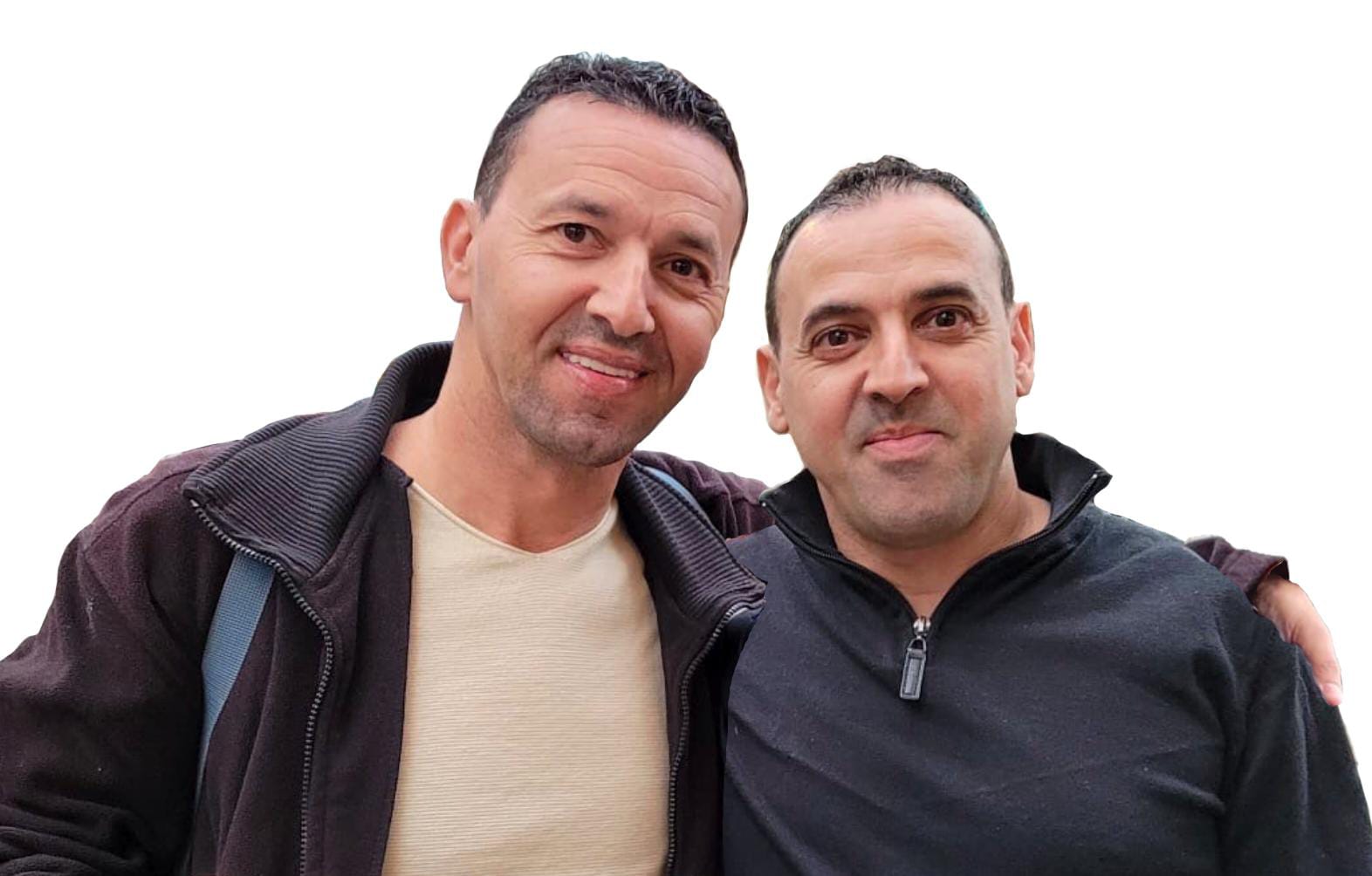
Hostage Updates
IDF says it foiled an attempt to smuggle weapons into Israel from Syria
The IDF says it foiled an attempt to smuggle weapons into Israel from Syria earlier today.
Soldiers of the 595th Combat Intelligence Collection Unit, who operate surveillance cameras, spotted two suspects approaching the Israeli border from Syria.
Troops of the Golan Regional Brigade were dispatched to the scene and detained the pair, who were found to be carrying five handguns, the IDF says.
The two suspects were taken for further questioning, the military adds.
- Syria in uproar after president al-Sharaa cancels Yom Kippur War anniversary
Syrian President Ahmad al-Sharaa has abolished the Yom Kippur War commemoration and several Assad-era holidays, adding new dates marking the 2011 uprising; move sparked controversy across the Arab world, especially in EgyptAs Egypt marks its annual “October 6 Victory Day,” commemorating what it views as a triumph in the 1973 Yom Kippur War, Arab media is focused on a new decree issued Sunday by Syrian President Ahmad al-Sharaa. The order sets Syria’s official holidays and annual leave days and abolishes four holidays that were recognized under former President Bashar Assad.The holidays removed include “March 8 Revolution Day,” “Teachers’ Day,” “Martyrs’ Day” (“al-Shuhada” in Arabic), and the commemoration of the Yom Kippur War.Al-Sharaa, who recently addressed the United Nations General Assembly in New York, added new holidays for what he called “the new Syria.” These include “Liberation Day,” set for December 8 to mark the fall of the Assad regime, and “Anniversary of the Syrian Revolution,” to be observed every March 18 — the date of the first demonstrations in Daraa in 2011 that signaled the start of Syria’s civil war.In addition to the new national holidays, the decree lists religious and public celebrations including Eid al-Fitr, which ends Ramadan; Eid al-Adha, the Feast of Sacrifice; the Islamic New Year; Christmas; Easter; and Mother’s Day.Arab media — particularly in Egypt, where October 6 is a national holiday — devoted wide coverage to the Syrian decree. The Egyptian daily Al-Youm al-Sabea reported that in Syria “the memorial day for the war of October 6, 1973, which had been a national day marking the war of liberation against Israel, has been canceled. Also canceled was Martyrs’ Day on May 6, which commemorated the execution of a group of Syrian nationalists by Ottoman authorities in Damascus in 1916.”The paper added that “the decision has sparked controversy after it included the cancellation of two of the most prominent national events in Syria for decades.” The decree also drew criticism across Arab social media, mostly from opponents of the new Syrian government. One post claimed al-Sharaa made the move “because October 6 annoys Israel,” referring to recent reports of talks between Syria and Israel about a possible security agreement. Another post on the platform X said: “On the anniversary of the victory over Israel, Ahmad al-Sharaa cancels the celebrations of the glorious October War, which crushed, humiliated and defeated the Zionist Israeli army.”Other criticism came from Syrians who said the decree ignored the country’s minorities. The Nowruz festival, the Persian New Year celebrated by the Kurds, was not included in the list. One statement opposing the decree said it “clearly and regrettably ignores national and religious holidays important to many groups within the Syrian people and directly harms the principles of equality and citizenship that are supposed to be the cornerstone of the new Syria.” link
The preparation in the Gaza Division for a Hamas invasion scenario – that was cut off months before the massacre
In a special discussion of the division about the “Jericho Wall” plan, it was decided on the ways to prepare for a Hamas raid and the ways to prevent it. It was decided to monitor a series of means of the terror organization that could serve as “an indicative sign of invasion.” But after about three months, the division commander was replaced and the plan was abandoned. The “golden intelligence” about the invasion becomes a footnote in the intelligence assessment.A few days after the Gaza Division receives the massive Hamas raid plan, a special discussion is held. The intelligence officer, Lt. Col. Y., and the head of the raid section, Maj. N., present the plan under the name they chose for it – “Jericho Wall.” At the end of the discussion, the division commander at the time, Nimrod Aloni, issues a document – 13 points, to which additional sections will be added in the next two months – on how to prepare for a Hamas raid and what must be done to prevent a surprise attack.
Exclusive – “Jericho Wall” scenario
Before the massacre on October 7, the scenario that the defense establishment prepared for facing Gaza was that of the “Liberation System,” a raid from the tunnels. The “Jericho Wall” plan deals with a raid from the ground, on foot, on motorcycles, and in vehicles. For three months, the Gaza Division – and it alone – prepares for Hamas’s raid plan. But then, the division commander at the time, Nimrod Aloni, is replaced by Avi Rosenfeld, and under the Southern Command commander Eliezer Toledano, who does not believe in this scenario, the preparations stop, and the result is known.
In the discussion presenting “Jericho Wall,” they decide from now on to monitor a series of Hamas activities – the movement of which constitutes an indicative sign of a raid. For example, Hamas’s aerial activity – an issue that until then had not been monitored. Another new sign is the activity of Hamas engineering personnel, who enabled the breach of the fence and the rapid crossing inward. Without them it would not have been possible to realize “Jericho Wall.” So also the use of small bridges, with which the Nukhba terrorists leaped over the concrete beam with their vehicles.
In the division they now closely monitor the number of Hamas Nukhba terrorists. According to the raid plan, twice as many as those known to the IDF at that point are required. In addition, they monitor the nature of the training of the terror organization: if these will match the Jericho Wall plan. About a year later, the noncommissioned officers V. and S. from Unit 8200 will identify that Hamas’s trainings are in the plan’s pattern, and the division’s intelligence officer will dismiss this.
Preparing the division for the possibility of a raid
At the same time, division commander Aloni begins to prepare the area for the possibility of a Hamas raid – he initiates a plan that includes the activation of explosives, but does not receive safety approval for it. He also establishes fortified ambush positions near the fence, to which fighters would be rushed if indicative signs appeared. Later, those positions will gather dust.Upon infiltration, the announcement “Parash Peleshet” is made – for the Air Force until then all targets were underground, meaningless if there is a raid from the fence. In the document it is written to prepare “whistling targets,” 60 points on the ground around the barrier that the planes would bomb in “Parash Peleshet,” at intersections through which vehicles and motorcycles must pass. Exercises were held with the Air Force, but for 10 months until October 7 the targets were not validated; during the Hamas attack, when “Parash Peleshet” was announced, the planes bombed only the tunnels.
When the division presents to Southern Command commander Toledano the warnings and preparations, he dismisses them. Major General Toledano initiates no discussion about “Jericho Wall,” and also does not present or consult anyone on the plan. When division commander Aloni leaves his position in August 2022, the preparation is cut off at once. In the last two years, Major General Aloni commanded the Depth Headquarters and the military colleges; last week he took off his uniform and expressed sharp criticism of what he calls “the trampling of the concept of responsibility.”
Jericho Wall A’
“Jericho Wall” was the second time that Unit 8200 produced Hamas’s ground raid plan into the Gaza envelope. Its earlier version landed in Military Intelligence in March 2018, and it was more similar to the October 7 attack as it actually happened: the launching of thousands of rockets, under whose cover the upper fence is breached by engineering forces, and thousands of Nukhba terrorists seize bases in the Gaza Division, the kibbutzim in the envelope, and the city of Sderot, alongside mass kidnappings.
This plan was received, among others, by Gaza Division commander Yehuda Fuchs, Southern Command commander Eyal Zamir, and the head of Military Intelligence, Herzi Halevi. The most important person who received “Jericho Wall A’” is Brigadier General Dror Shalom, head of the Research Division in Military Intelligence, who is responsible mainly for one thing – to provide a warning for war.
His name almost did not come up in the coverage of the failure, but when this plan reaches him, at first he makes a serious analysis; the conclusion – Hamas’s force build-up is in full swing, but the plan at this stage is not ripe. How does he track Hamas’s steps afterward? He does not. In 2019, he turns this golden intelligence into footnote number 35 on page 63 in the intelligence assessment of the division.
The head of the Research Division did not even update the Chief of Staff on the existence of the plan, and after a year it evaporated as if it had never been. In the IDF investigation it was determined that there was “a huge failure in passing the baton – the baton fell,” meaning that the officers exposed to “Jericho Wall” in 2022 were not familiar with its earlier version. Dror Shalom is today the head of the Political-Security Division in the Ministry of Defense.
The responses
From the IDF Spokesperson it was stated: “Brigadier General Amit Yamin has served since October 7 in the position of division chief of staff, instead of the position to which he was appointed before the war. He takes a central part in the management of the fighting and in the defense of the communities.”Brigadier General (res.) Dror Shalom, former head of the Research Division in Military Intelligence, stated: On behalf of the former head of the Research Division in Military Intelligence, Brig. Gen. (res.) Dror Shalom, it was stated: “This is a grave attempt to rewrite history. The opposite is true! The head of the Research Division in 2018, Brig. Gen. Dror Shalom, instructed to investigate in depth the information received, despite the assessment that Hamas was deterred, and even established a section whose role was to investigate Hamas’s force build-up.
Also Sinwar’s captured documents indicate that Hamas did not hold an orderly operational plan until after Operation Guardian of the Walls (long after Shalom’s retirement from the IDF). It should be emphasized that although during his term Hamas had no orderly plan, Brig. Gen. Shalom presented a grave strategic warning regarding the Palestinian issue and the policy of strengthening Hamas that would be a crying for generations. Not for nothing during Shalom’s tenure the Research Division presented a severe scenario of a surprise Hamas attack and even formulated a warning model for such an attack. The operative plans and the exercises in this pattern carried out by the IDF during that period will testify.”
Important clarification: The one who provided the intelligence assessment according to which Hamas was deterred was the head of the Research Division himself, Dror Shalom. A year after the plan was received, it turned into a footnote and evaporated by his personal decision to the point that he did not even mention its existence in the handover to his successor, Amit Sa’ar. link
- Most Israelis think time right to end war, 45% want PM to quit immediately — poll
Top reason for both Jewish and Arab Israelis wanting to end the war is the risk to hostages; 56% of those who don’t want war to end say continued assault needed to remove HamasA majority of Israelis believe the time has come to end the war in Gaza, with the top reason being the endangerment of hostages, according to a poll by the Israel Democracy Institute released on Monday, as negotiations were set to begin on the first stage of US President Donald Trump’s peace proposal.
The survey found that 66 percent of Israelis say the time has come to end the war — a figure 13 points higher than the result from a year ago when respondents were asked the same question — compared to 27% who think or are certain that the time has not yet come, and 7% who are unsure.
The top reason both Jewish (50.5%) and Arab Israeli (34.5%) respondents gave that the war should end is the endangerment of the hostages.
Among those who think the war should not be ended, 56% of respondents say operations must continue “to topple and remove Hamas,” while 28% believe continued fighting is key to freeing the hostages.
Other reasons include ensuring Jewish settlements are built in Gaza (6.5%), revenge for the October 7, 2023, massacre that sparked the war (4%), and preventing Prime Minister Benjamin Netanyahu’s coalition from falling (2%).
Israeli and Hamas negotiators arrived in Egypt on Monday for talks on US President Donald Trump’s 20-point plan to end the war in Gaza and free all 48 remaining hostages, at least 20 of them alive.
According to Trump’s plan, Israel, in return for the hostages, is expected to release 250 Palestinian prisoners with life sentences and more than 1,700 detainees from the Gaza Strip who were arrested after October 7, 2023.
The IDI poll published on Monday also found that 66% of Israelis think Netanyahu should take responsibility for the failures surrounding Hamas’s October 7 attack and resign, either immediately (45%) or after the war (19%).
According to the poll, 18% believe he should accept responsibility and not resign, 13% believe he should do neither, while 5% of respondents answered they didn’t know.
“The share of those who think that Netanyahu should accept responsibility and resign immediately is much higher among Arabs (67%) than among Jews (41%),” the IDI said in a statement.
While a majority of centrist (63%) and left-wing Jews (88%) believe Netanyahu should quit now, right-wingers are divided, according to the poll, which found 23% in that group think he should step down immediately, 25% believe he should resign at the end of the war, 27% think he should accept responsibility and not resign, and 21.5% believe he should do neither.
Despite receiving several warnings by the security establishment in the years and months before October 7, Netanyahu has avoided taking responsibility for the massacre, repeatedly asserting that the security establishment — not political leaders — failed to prevent the deadliest attack in Israel’s history. He has also refused to authorize a state commission of inquiry into the failures surrounding October 7.
The IDI survey was conducted via the internet and telephone between September 14-18, with 800 participants interviewed in Hebrew, 200 in Arabic, and with a sampling error of 3.10%.
- Who was fired, who quit and how Netanyahu dodged blame: mapping accountability two years after October 7
Two years after Hamas’s October 7 attack, Israel’s top security ranks have shifted amid resignations, firings and public soul-searching; from the Shin Bet to the IDF, senior officials admitted failures — but the political leadership has not followed suitTwo years after the Hamas-led terrorist attack on Oct. 7 2023 that plunged Israel into war and left deep scars on the nation, 48 hostages remain in captivity in Gaza. As Israelis mark 732 days since that morning, a question still divides the country: who has taken responsibility for the failures that allowed the attack to happen — and who has not?Over the past two years a series of senior military and intelligence officials have resigned or been dismissed. Some accepted blame for their part in the disaster while others maintained they had already planned to end their service.
At the same time key figures at the political level — notably Prime Minister Benjamin Netanyahu and National Security Adviser Tzachi Hanegbi — continue to hold their posts despite widespread public criticism.Firings at the topIn March 2025 Shin Bet Director Ronen Bar became the second senior official fired by Netanyahu since the war began, following the dismissal of Defense Minister Yoav Gallant the previous year. In both cases Netanyahu cited “a growing lack of trust.” Bar’s dismissal came amid tensions between him and the prime minister and against the backdrop of the so-called Qatargate affair, in which leaks suggested disagreements over the handling of Qatari mediation. Netanyahu said he had “no confidence” in Bar, adding, “In a war for our very existence — a war on seven fronts — full trust is essential between the prime minister and the head of the Shin Bet.” Bar responded that he had already intended to step down before his term ended and insisted his removal was unrelated to Oct. 7. He said Shin Bet investigations pointed to “years of deliberate political disregard for the agency’s warnings” and urged a full inquiry into government policy before the attack. Netanyahu’s decision to fire Gallant in November 2024 marked the second time he had attempted to remove his defense minister since the war began. The prime minister said that “trust between the prime minister and the defense minister had eroded” and that “in wartime, full cooperation is vital.” Gallant wrote after his dismissal that “the security of the State of Israel has been — and will always remain — my life’s mission.” Senior IDF officers step down In January 2025 IDF Chief of Staff Lt. Gen. Herzi Halevi informed Defense Minister Israel Katz of his decision to resign, saying it stemmed from “recognition of my responsibility for the IDF’s failure on Oct. 7.” “That morning, under my command, the IDF failed in its mission to defend the citizens of Israel,” Halevi wrote in his resignation letter. “The country paid a heavy and painful price — in lives lost, in hostages, in the wounded in body and soul.” In a statement near the Gaza border Halevi called for an independent inquiry into the failures and praised the army’s recovery since the attack. “We failed and I carry that with me every day,” he said. “I am proud of the IDF for its resilience, its path and its achievements.” Following Halevi’s resignation Southern Command Chief Maj. Gen. Yaron Finkelman informed him that he too would step down. “On Oct. 7 I failed in my duty to protect the western Negev and its beloved residents,” Finkelman wrote in a handwritten letter. “That failure is seared into me for life.” He praised his soldiers’ “heroism and determination,” calling them “a generation of victory.” Maj. Gen. Aharon Haliva, head of Military Intelligence, was the first senior official to resign over the failures of Oct. 7. He informed Halevi of his decision in April 2024, saying, “The Intelligence Directorate under my command did not fulfill its mission. That black day stays with me day and night.” Haliva had publicly accepted responsibility within two weeks of the attack, declaring that “as head of Military Intelligence I bear full responsibility for the failure to provide warning of Hamas’s terrorist assault.” In March 2025 Maj. Gen. Oded Basiuk, head of the IDF Operations Directorate and third in the IDF hierarchy, also announced his resignation. While an internal investigation did not find negligence in his department’s conduct on Oct. 7, Basiuk said he wished to “exercise personal accountability” as the officer overseeing the army’s operational forces. Incoming Chief of Staff Lt. Gen. Eyal Zamir asked him to remain temporarily “in light of ongoing operational challenges.” In June 2024 Brig. Gen. Avi Rosenfeld, commander of the Gaza Division, informed his superiors of his decision to retire from the army. “On Oct. 7 I failed in my life’s mission to protect the communities along the Gaza border,” Rosenfeld wrote to local leaders. “For hours we could not defend the towns, the festival at Re’im or our soldiers against thousands of Hamas terrorists who invaded through dozens of breaches.” He said he carried the pain of the losses with him “every day” and pledged to remain close to bereaved families and wounded soldiers. Harsh words from departing generals Maj. Gen. Nimrod Aloni, head of the IDF’s Depth Corps and former commander of the Gaza Division, also retired last week. His farewell speech, attended by the chief of staff, was among the sharpest public critiques by a serving general. “I am leaving an army where the concept of responsibility has been trampled and desecrated, an army that has lost the courage to place its failures on the table,” he said. Aloni admitted that Israel had misread the intentions of its enemies in the years leading up to the attack. “Two years ago we tried to contain our enemies to the south and north, believing that time would serve our economy and growth and that we could preserve the status quo. We were wrong, all of us,” he said. He added, “Keep our oath: never again Nir Oz, never again the Nova massacre.” Aloni reflected on his personal failures, including “my inability to prevent the murder of the Fogel family, my decision to travel to Southern Command headquarters rather than fight in the Gaza border communities on Oct. 7 and the soldiers who fell under my command.” Air Force Commander Maj. Gen. Tomer Bar, the most senior officer still in his role since Oct. 7, is expected to retire soon. His likely successor is Brig. Gen. Omer Tishler, who served as Air Force chief of staff on the day of the attack. Defense Minister Katz has said previously that “anyone who held a senior post on Oct. 7 will not be promoted.” Maj. Gen. Ghassan Alian, the Coordinator of Government Activities in the Territories (COGAT), has also asked Chief of Staff Zamir not to extend his term again. Alian heads the Defense Ministry unit that oversees civilian and security coordination with the Palestinian Authority and the Gaza Strip. Political leadership remains in place Despite the wave of resignations and dismissals Prime Minister Netanyahu has refused to accept personal responsibility for the Oct. 7 failures. While he often takes public credit for Israel’s military and diplomatic successes he has said he faces “daily accountability before the public.” In May, responding to a Ynet question about why he had not taken responsibility, Netanyahu said, “I submit the decision to the public every day. We are in a war — do you want elections now?” On the eve of Sukkot he posted a message wishing Israelis a happy holiday without mentioning the anniversary of the massacre. Tzachi Hanegbi, head of the National Security Council, has likewise remained in his position. The council, created after the 1973 Yom Kippur War to coordinate Israel’s national security policy, is tasked with developing counterterrorism strategy — the very coordination that failed in the lead-up to Oct. 7. In their departures several officers have used their final statements to call for accountability and cultural change within Israel’s defense establishment. Haliva, Halevi, Finkelman, Rosenfeld and Aloni each admitted personal failure and emphasized the need for internal and public inquiries. But while Israel’s military and intelligence ranks have seen turnover and self-criticism, political responsibility remains largely unclaimed. Two years after Oct. 7, with 48 hostages still held in Gaza and the war dragging into its third year, the debate over who bears ultimate responsibility continues at the highest levels of Israel’s leadership. link At the beginning of the war, there were many reported statements by ministers of the coalition where they said they bore direct responsibility for the abandonment of October 7 they would have to pay the price. That might have happened if Netanyahu had been of the same mindset. Instead, On October 8, while Hamas terrorists still held many of the communities along the Gaza border and major fighting was going on and residents were been evacuated under fire, Netanyahu held one of his most important meetings. No, it wasn't with the Chief of Staff or the heads of the Shin Bet, Mossad, National Security Council or anyone from the Intelligence services. This meeting was with his political advisors and PR people. Netanyahu, on October 7 was paralyzed both by the surprise attack and the fact that his political career may have come to an abrupt end and he would leave in total disgrace. So, on October 8, he held this meeting and the results were immediate. Instead of taking any responsibility, his team together with him build his new narrative which was so very distant from reality. He placed all blame on the security organizations and their heads: The IDF, Shin Bet and Mossad. His new claim was that they insisted that Hamas had been deterred and there was no chance of an attack. No where did he mention that he had been the prime minister for the better part of the last 2 decades and had all the intelligence data at his fingertips for all of that time. No where did he mention that it was his career goal to prevent not only the existence of a Palestinian State but also any discussion of it, and therefore did all he could to weaken the Palestinian Authority and strengthen Hamas, so he could always sat that there is no partner for peace or even a true representative of the Palestinians. No where did he mention the hundreds of millions of dollars that he insisted that Qatar keep sending into Gaza which was used primarily for Hamas, not did he mention that he directed all of his security chiefs and their underlings for years to concentrate on Iran and that Gaza wasn't important. He never mentioned that he had said on multiple occasions that Israel will never have to put boots on the ground in Gaza ever again, and course, he never mentioned that one of his senior ministers, Smotrich the extremist who Netanyahu strengthened in order to put together his coalition and remain prime minister, the statement that Smotrich repeated that "Hamas is an asset to Israel". Netanyahu made it his mission to shirk all responsibility for October 7 and everything that led up to it and all of his ministers and Knesset members followed suit. It was exactly the same thing that happened regarding the formation of a State Commission of Inquiry. Many ministers and Knesset members of the coalition publicly stated the absolute need for a state commission of inquiry and said that it would happen. Netanyahu has spent the last 2 years preventing that commission and tried to have the Knesset pass a law that would have legally prevented the commission from being formed. He has tried to push a Knesset Commission that would be fully determined by the government that the commission is supposed to investigate. They would have chosen the commission members, their areas of investigation, of which the political echelon would have been exempted, their limits of conclusions and punishments and would have been sure to direct their outcome. Netanyahu knows very well that an independent state commission would eventually find him responsible and to blame for most of what happened before October 7, for the absolute failures of the army and government on October 7 and the days following, for the mismanagement of the war, and for the total mismanagement of the hostage crisis in lieu of political interests. He is also very fearful that the commission's findings will penalize him with never being allowed to hold public office again and with the distinct possibility of being legally responsible for many things that can send him to prison. Throughout the war and the continuing hostage crisis, Netanyahu's focus has always been to remain prime minister and all decisions he has made have put that as the priority and the good of the nation as a secondary interest. And for the last 4 months, he has already begun his election campaign without announcing it. Everything is focused on the rewrite of the narrative and history of the last 2 years and all that led up to October 7. Even for the Sukkot Holiday, he wished a good holiday to the nation and never mentioned the hostages or the fact that it is the 2nd anniversary of Black Saturday. He believes that Israel today is the same as Israel of October 6, 2023 and that the Israeli voter has a very short memory which has allowed him to push his narrative against the truth and reality and he has succeeded. We have news for Netanyahu of 2025. October 7 is forever ingrained in the collective Israeli memory. Nothing he says will erase what we all know and when elections finally come, he will learn just how good our memories are. We will not allow him to rewrite history with his own narrative, we will not allow him to escape justice. Elections will change our political map and send Netanyahu to the pages of history where the real story will be told and a State Commission of Inquiry will come to be and it will find Netanyahu responsible for so much of what has befallen us, not only in the last 2 years but for the years leading up to October 7. We will not forget. We will not forgive. And we, the nation will rebuild Israel into what we are capable of being and we will demand that our new leaders are worthy of us and will have to prove themselves, not just at the ballot box but every day that they are in power. We will build a better future as a rebirth just as the Phoenix and we will be stronger for it.
- The Region and the World
Who were you, beloved girls, whose lives ended with such cruelty?
The cruelty of ISIS-style evil
Acronyms and Glossary
ICC - International Criminal Court in the Hague
IJC - International Court of Justice in the Hague
MDA - Magen David Adom - Israel Ambulance Corp
PA - Palestinian Authority - President Mahmud Abbas, aka Abu Mazen
PMO- Prime Minister's Office
UAV - Unmanned Aerial vehicle, Drone. Could be used for surveillance and reconnaissance, or be weaponized with missiles or contain explosives for 'suicide' explosion mission
Join my Whatsapp update group https://chat.whatsapp.com/IQ3OtwE6ydxBeBAxWNziB0
Twitter - @LonnyB58 Bluesky - @lonny-b.bsky.social
My blogs in The Times of Israel my blogs
Substack - https://lonnyb.substack.com/
Twitter - @LonnyB58
My blogs in The Times of Israel my blogs
Substack - https://lonnyb.substack.com/

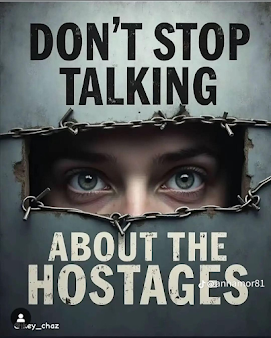
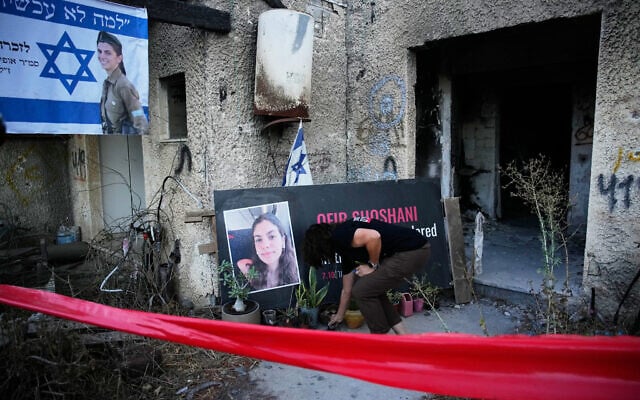
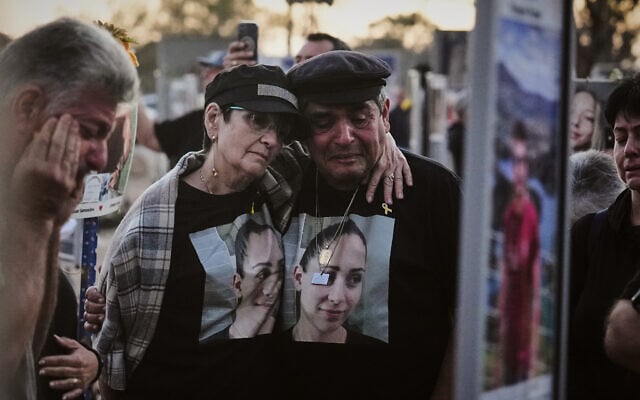
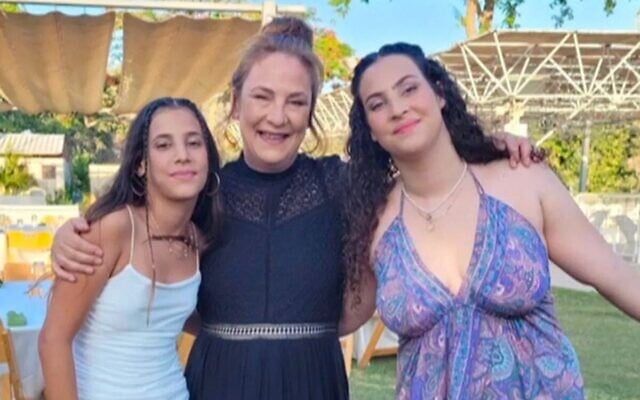

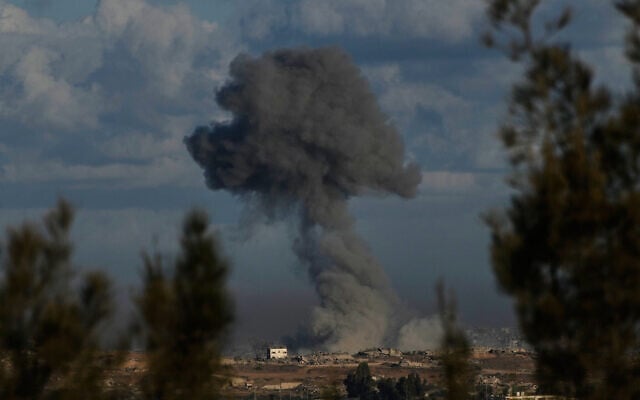
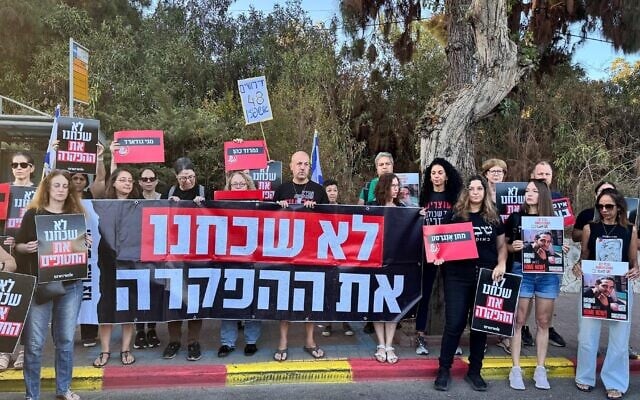
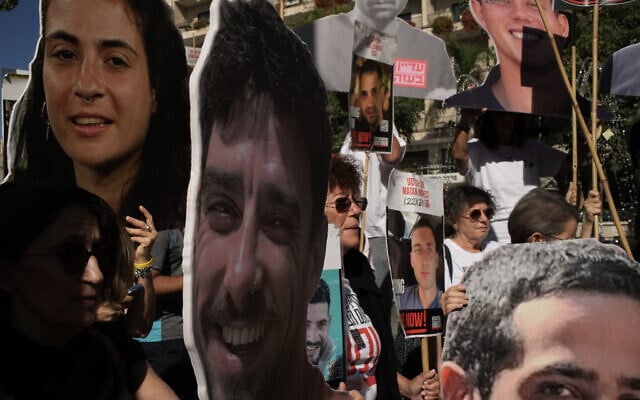
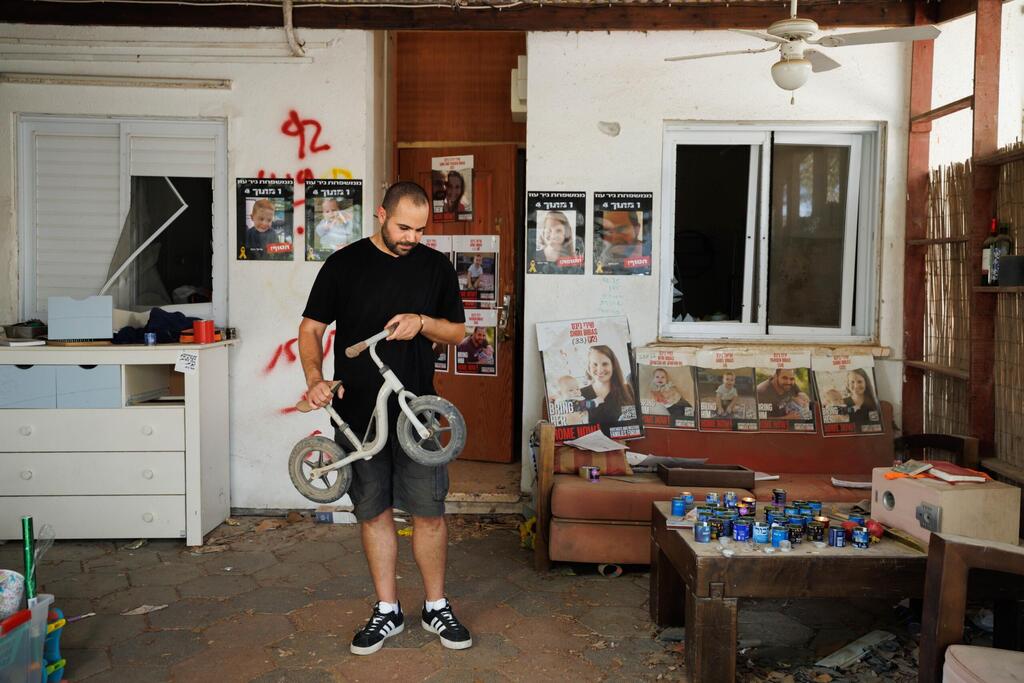
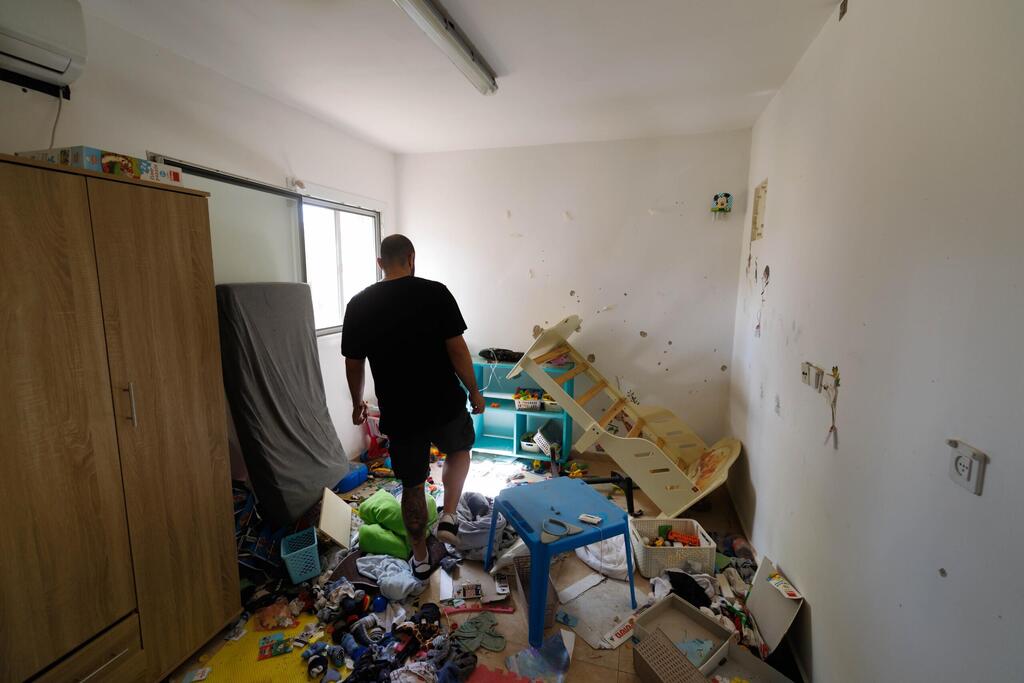
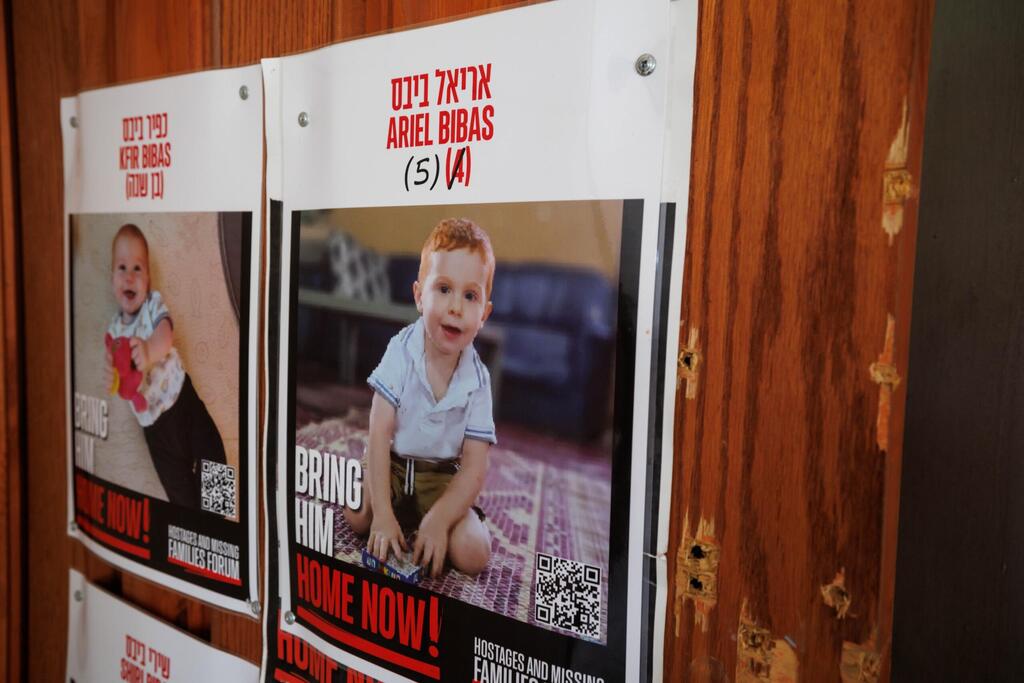
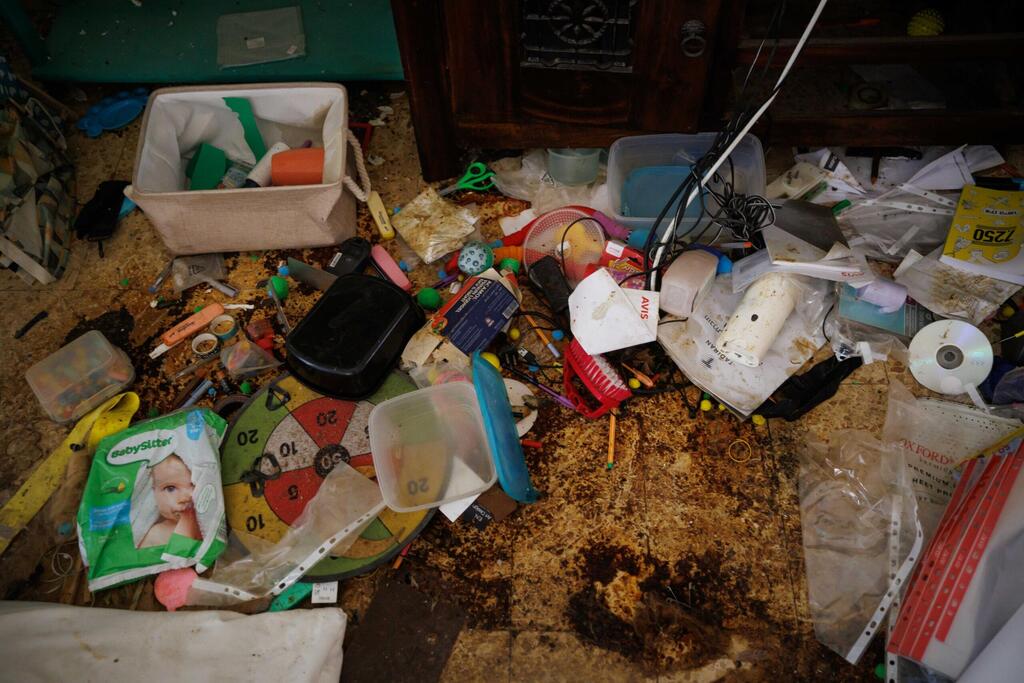
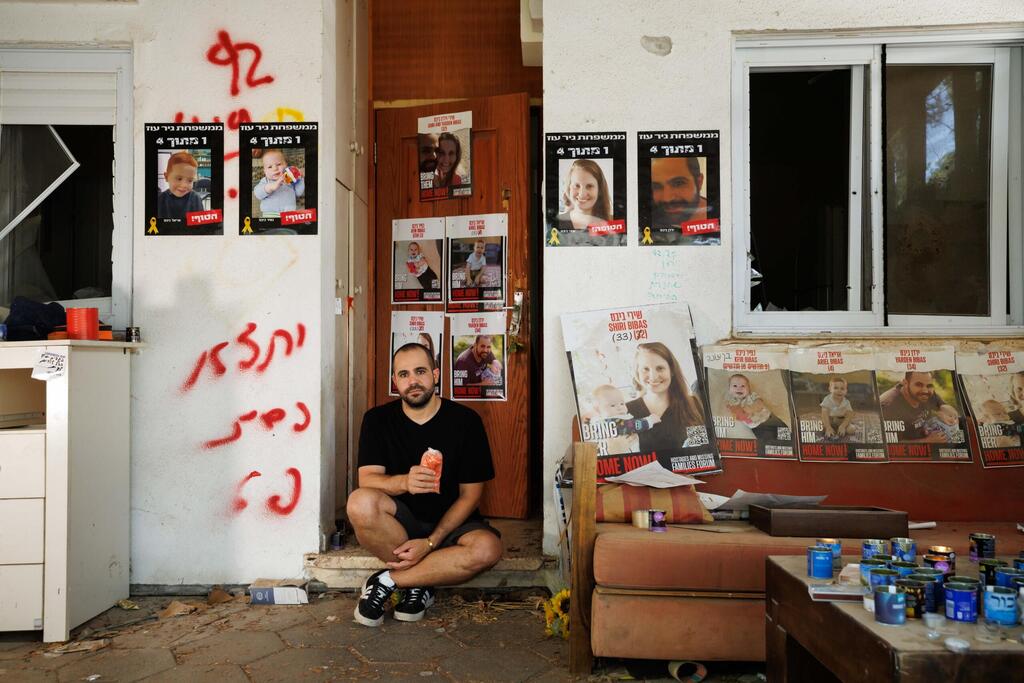
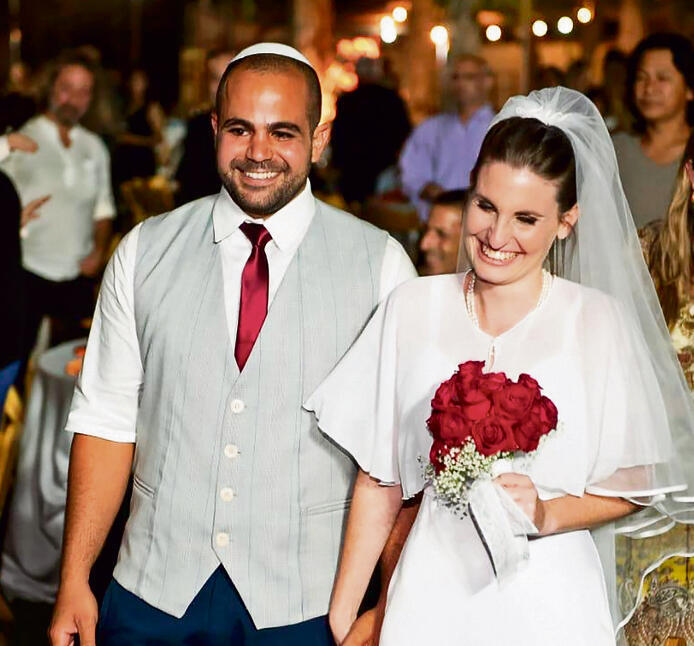
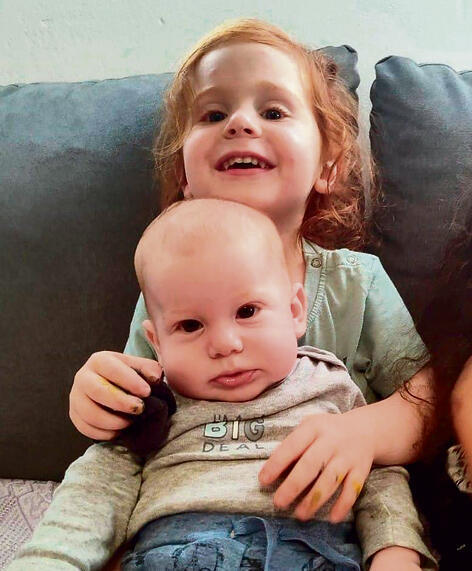
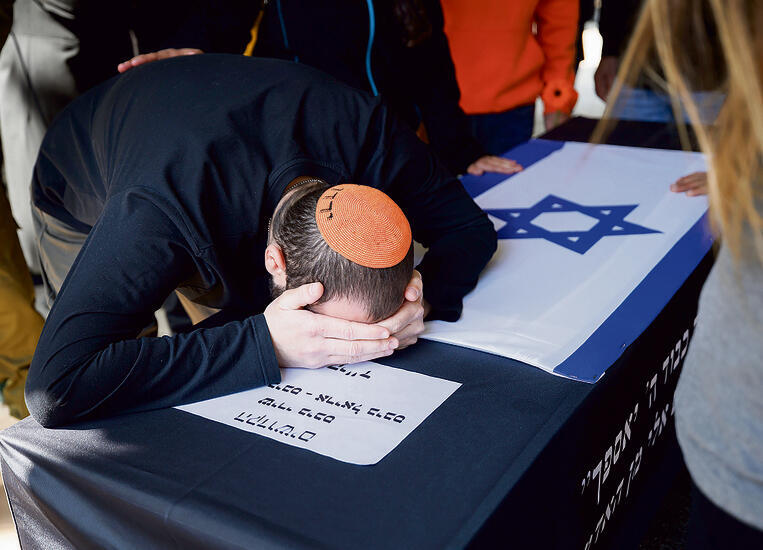
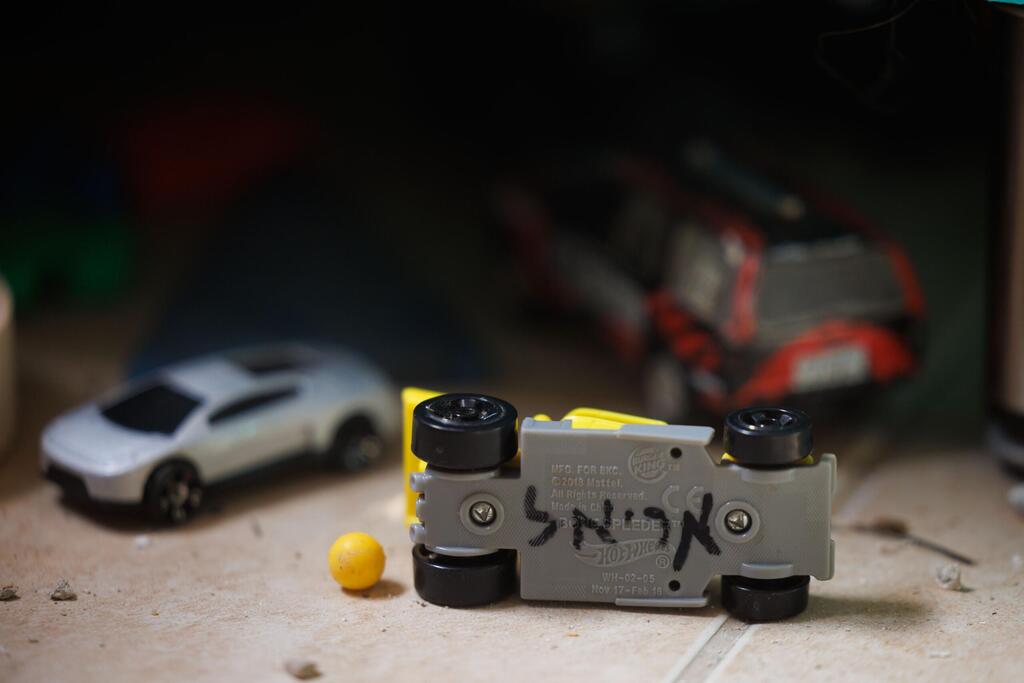
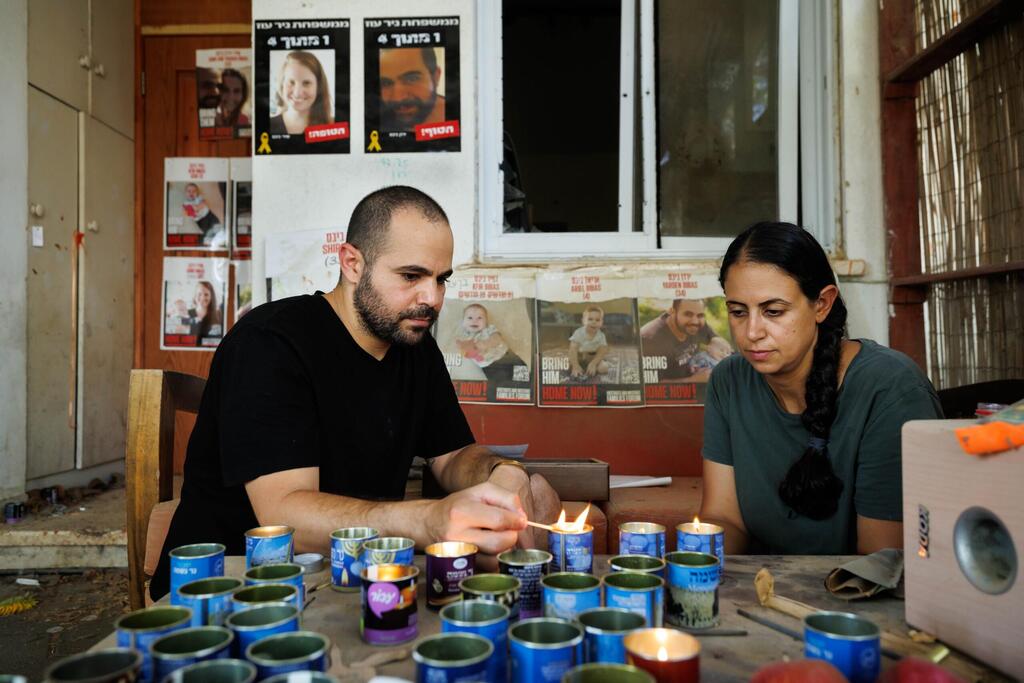
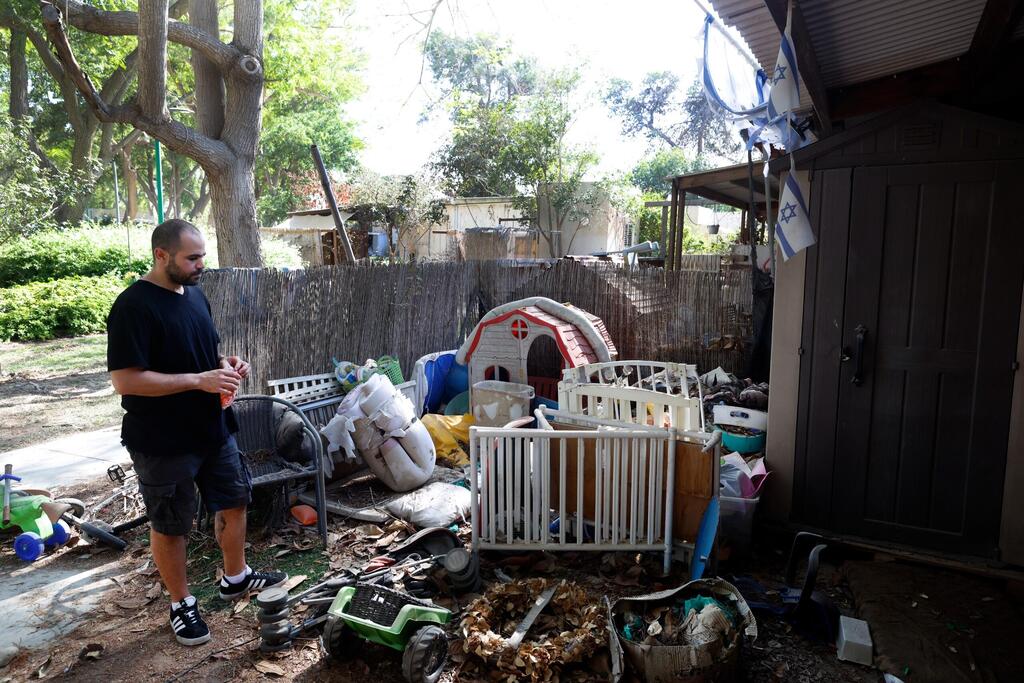
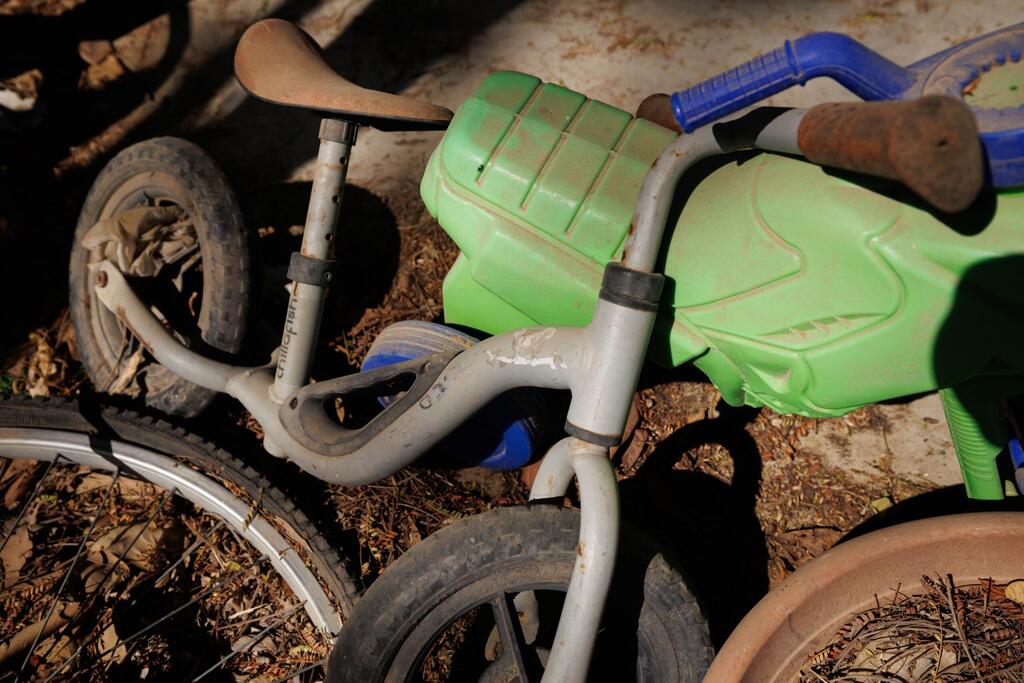
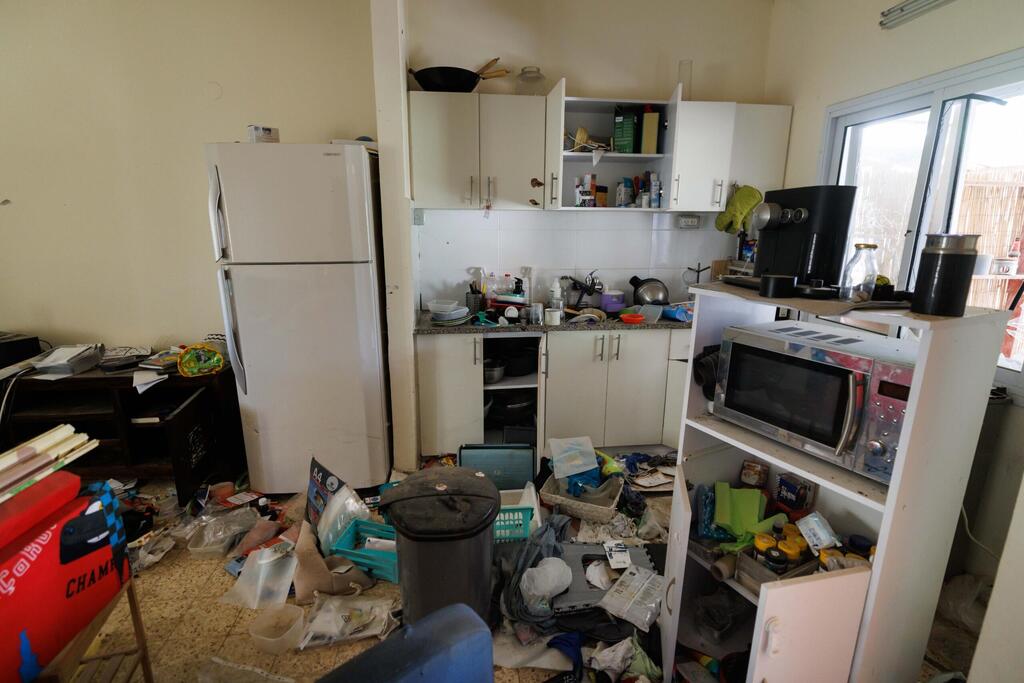
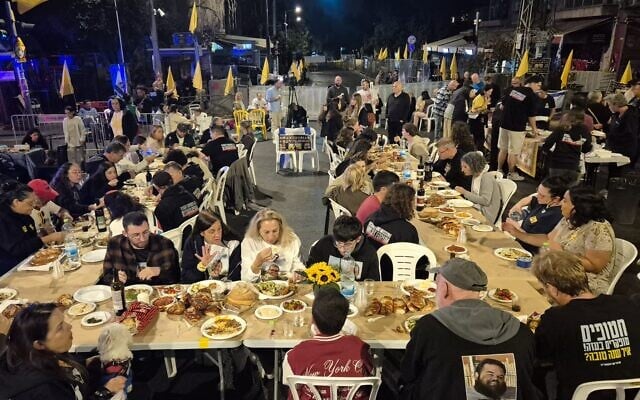
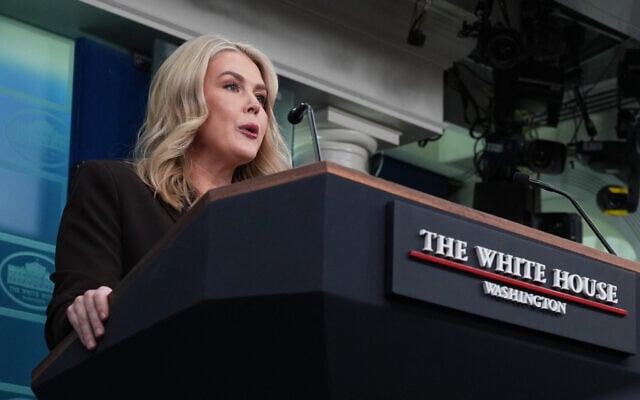

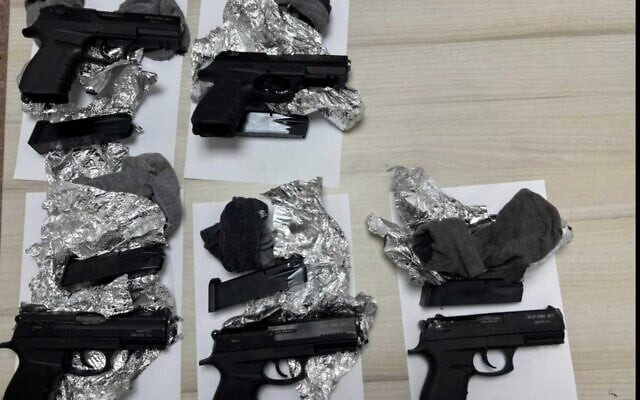












Comments
Post a Comment